2023 Summer Institute Participants
EZEKIEL ACOSTA | University of New Mexico Heading link
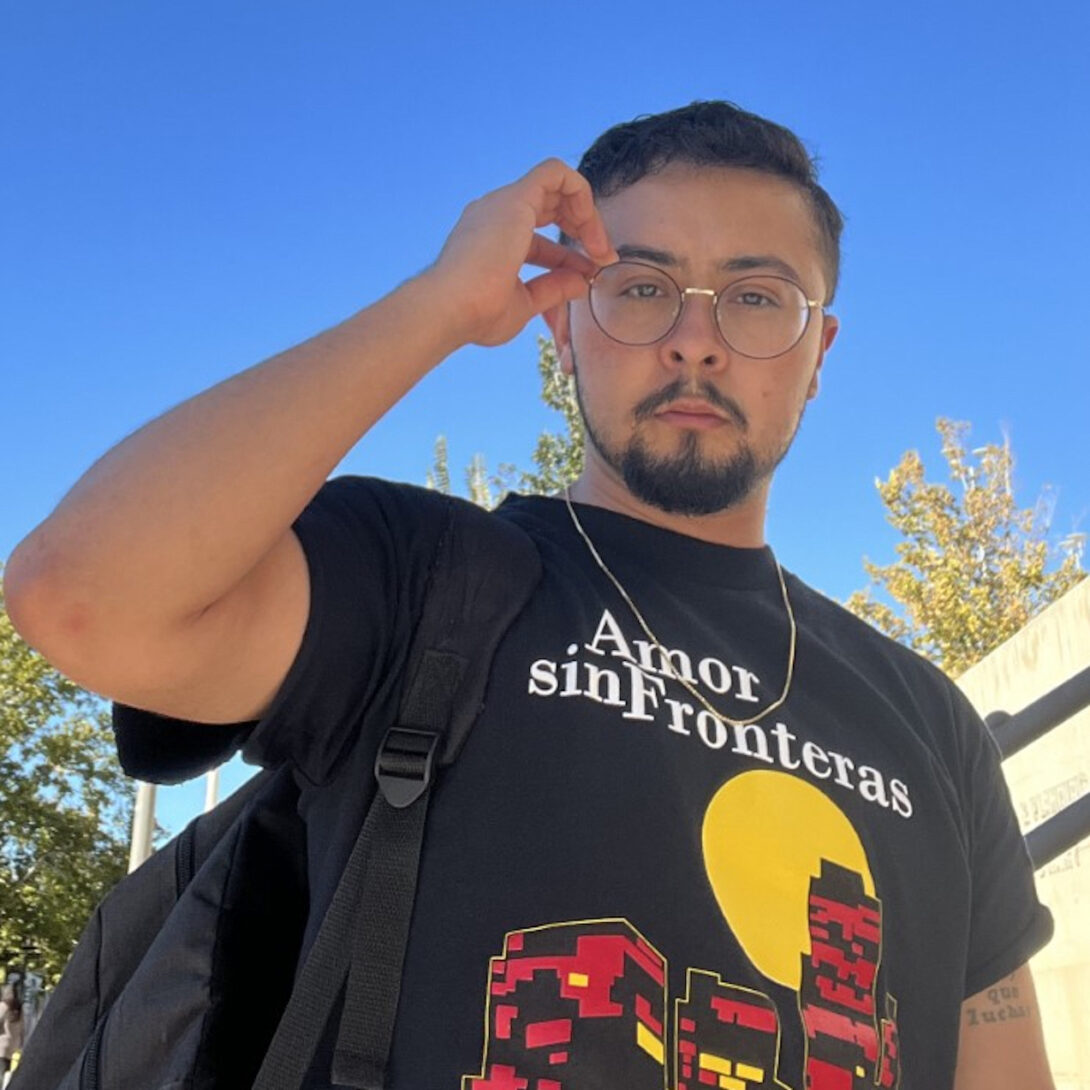
Ezekiel Acosta (he/him/el) holds a bachelor’s degree from the University of Illinois at Urbana-Champaign in Latinx Studies with a minor in LGBTQ+ Studies. His senior thesis on transmen in Guatemala centers non-Western epistemologies to expand the way discourses surrounding transness are talked about specifically within Latinx communities. With his master’s degree in American Studies from the University of New Mexico, he has diversified his research methods by incorporating analyses of Latinx visual culture as well as applying the work of Indigenous scholars, such as Shannon Speed, to think further about the role of anticolonial world making in his research. With his PhD, he would like to strengthen his archival and curatorial practices and integrate visual analysis and storytelling. Outside of academia, Ezekiel has worked as a social worker for Chicago House and Social Service Agency focusing on housing, employment, and sexual health. He has also run a trans support group for Brave Space Alliance and was a bilingual crisis hotline worker for Trans Lifeline during the pandemic. Much of his past work experiences center what he has focused on in higher education.
Mentor | Natalie Lira, Associate Professor and Associate Chair
Department of Latina/o Studies
University of Illinois at Urbana-Champaign
NAOMI AMBRIZ | University of New Mexico Heading link
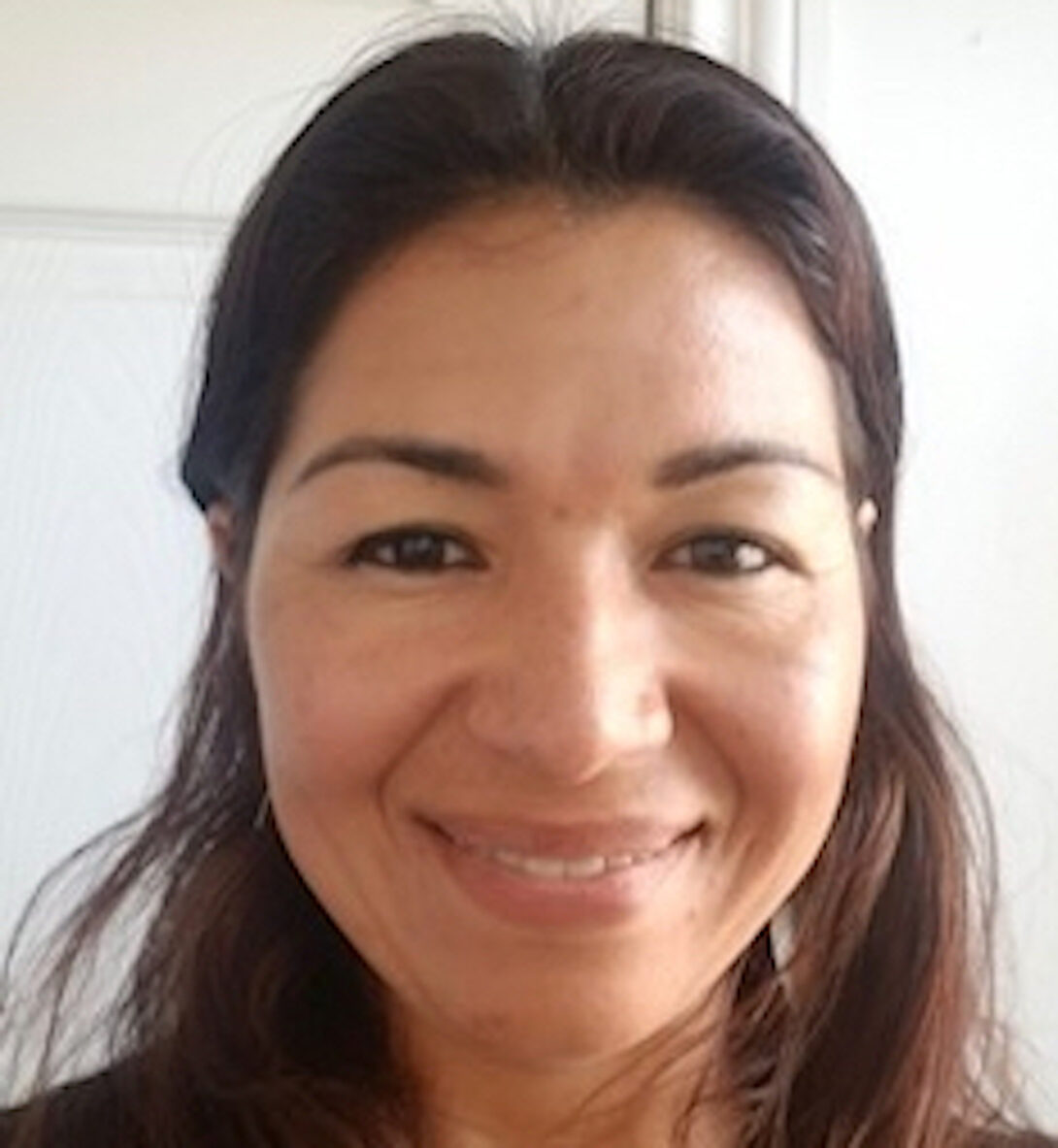
Naomi Ambriz is a first-generation Ph.D. student in American Studies at the University of New Mexico. Born and raised in South Central Los Angeles, Naomi received her B.A. from the University of California, Davis, and a M.A. in American Studies from the University of New Mexico. Her research interests center on the intersections of Afrodescendants racial formations, Critical Indigenous Studies, Critical Race Theory, and intersectional feminisms. More specifically, her research employs Chicana and African American feminist theories and methodologies to study the complex racial formations of Afrodescendants in the U.S. Southwest, Mexico, and Cuba. Naomi has published in Capitalism Nature Socialism and has served in the University of California, Davis (UCD) Social Justice Initiative committee.
Mentor | Kyle T. Mays, Assistant Professor, African American
Studies, American Indian Studies, & History
University of California, Los Angeles
AMANDO ARGUETA-VOGEL | UC Santa Cruz Heading link
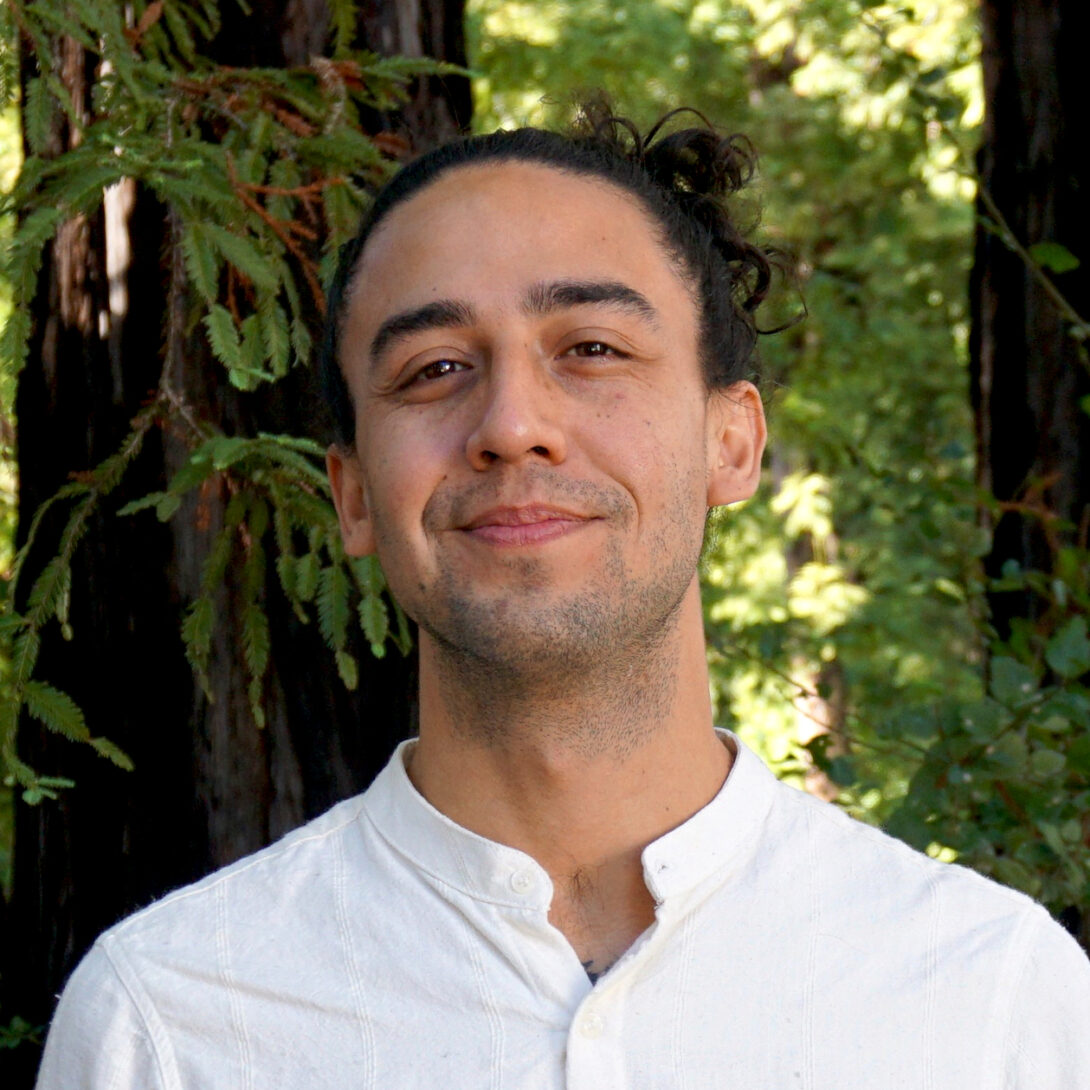
Amando Argueta-Vogel is a Salvadoran-American pursuing his Ph.D, in the Latin American & Latino Studies Department at the University of California, Santa Cruz. He holds a bachelor’s degree in Psychology with a minor in Philosophy from Santa Clara University (2013), where his research focused on Latinx ethnic identity formation, academic motivation, political philosophy, and ethics. His current research interests include Central American studies, migration, and decolonial philosophy. He is particularly interested in histories of Central American decolonial thought, and exploring how such histories might inform studies of Central American migration and philosophy of immigration.
Mentor | Grant Silva, Associate Professor, Philosophy
Marquette University
MARIBEL BELLO | University of Houston Heading link
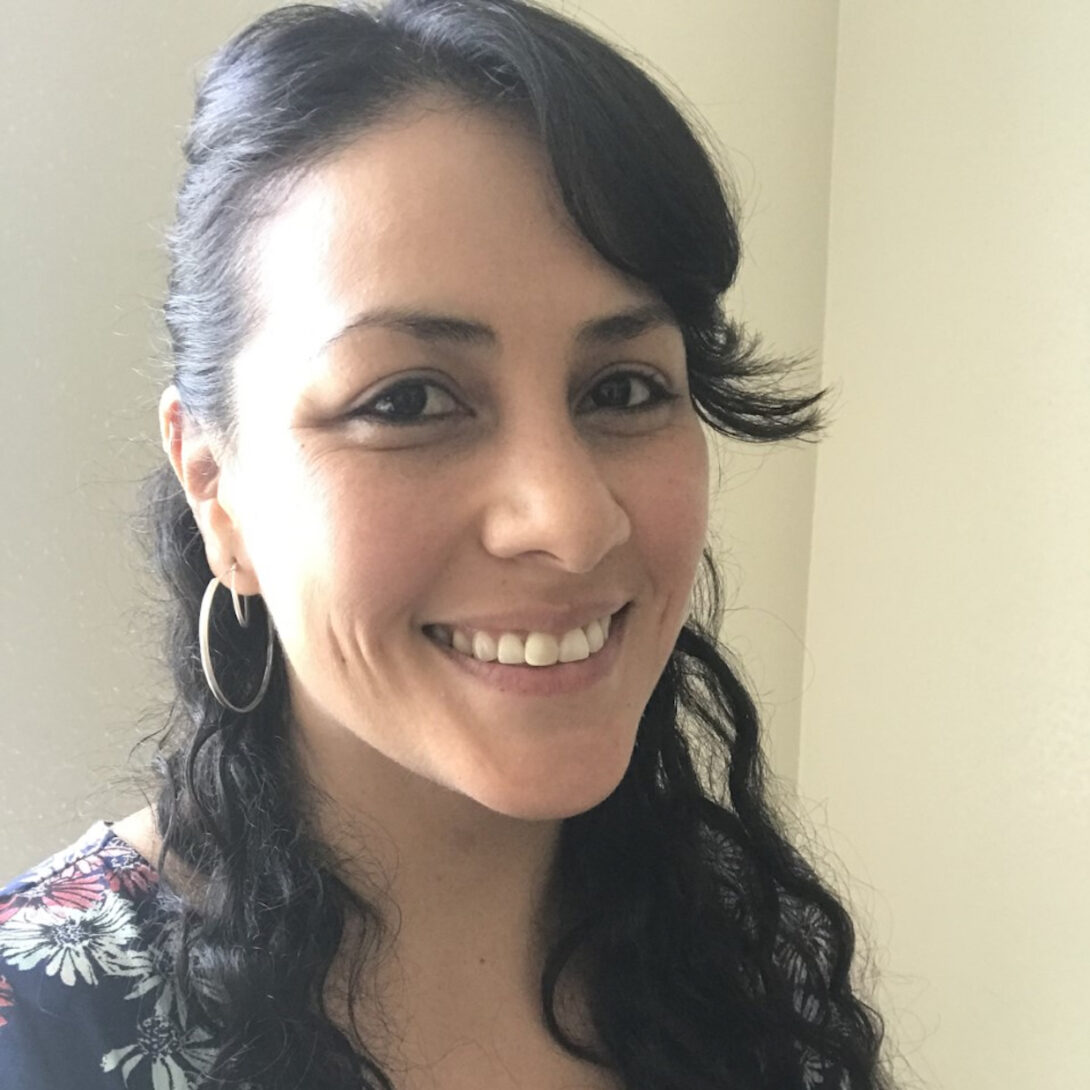
Maribel Bello is a writer, ethnographer, transdisciplinary artist and researcher of affectivities, liminal spaces, quotidian life, and subjective violences in vulnerable communities—principally life experiences of emotional migration between Mexico and the U.S. She graduated from UNAM with a degree in Communication Sciences, completed an M.A. in Latin American Studies at the University of Texas at Austin, and is currently a Ph.D. candidate in Spanish with a concentration in Creative riting at the University of Houston. She works as a researcher at Arte Público Press as part of the investigative team for the Recovering the U.S. Hispanic Literary Heritage Project.
Mentor | Stephanie Elizondo Griest, Associate Professor &
Margaret Shuping Scholar of Creative Nonfiction University of North Carolina at Chapel Hill
LEAH BOUAS | University of Texas at Arlington Heading link

Leah Bouas (she/her) grew up in the Dallas, Texas, area where she taught high school History for over a decade. She is a second-year Ph.D. student in the History program at the University of Texas at Arlington. Leah received her B.A. in History from Texas A&M University and her Ed.M. in Prevention Science and Practice from the Harvard Graduate School of Education. Her broader interests are women’s history and transatlantic history. Her current research explores transnational women’s organizations during the interwar era, including the Pan American Round Table and the International Council of Women of the Darker Races.
Mentor | Luz Maria Gordillo, Associate Professor, History &
Assistant Dean for Diversity, Equity, and Inclusive Excellence
Washington State University
ROSA ANGELA CALOSSO | The Graduate Center, CUNY Heading link
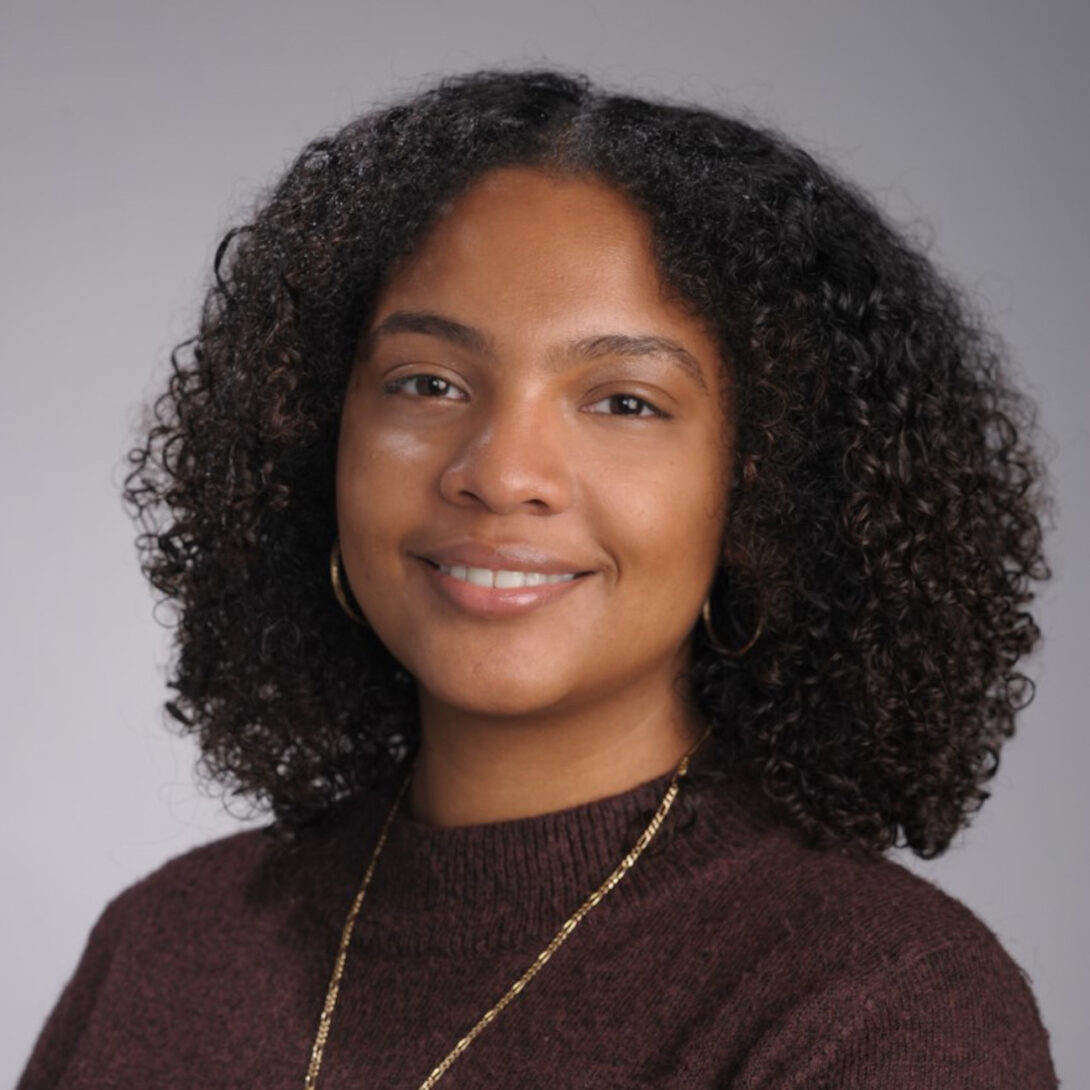
Rosa Angela Calosso (she/her/ella) is a doctoral student at the CUNY Graduate Center in the department of Urban Education. She is a proud Queens native, born to Dominican and Salvadoran immigrants. Growing up, she developed a strong understanding of immigration issues, Blackness, and gendered politics, leading her to serve as a participatory-action researcher in immigrant communities in the Bronx. She has served as an academic consultant for first and second-year college students and a social media curator for a social justice center. Her research focuses on Black Latinidad/Dominicanidad, gendered racism, digital media, and digital feminism.
Mentor | Alexander Gil Fuentes, Senior Lecturer II & Associate
Research Faculty of Digital Humanities
Yale University
MORAYMA FLORES-HIGINIO | UC Riverside Heading link
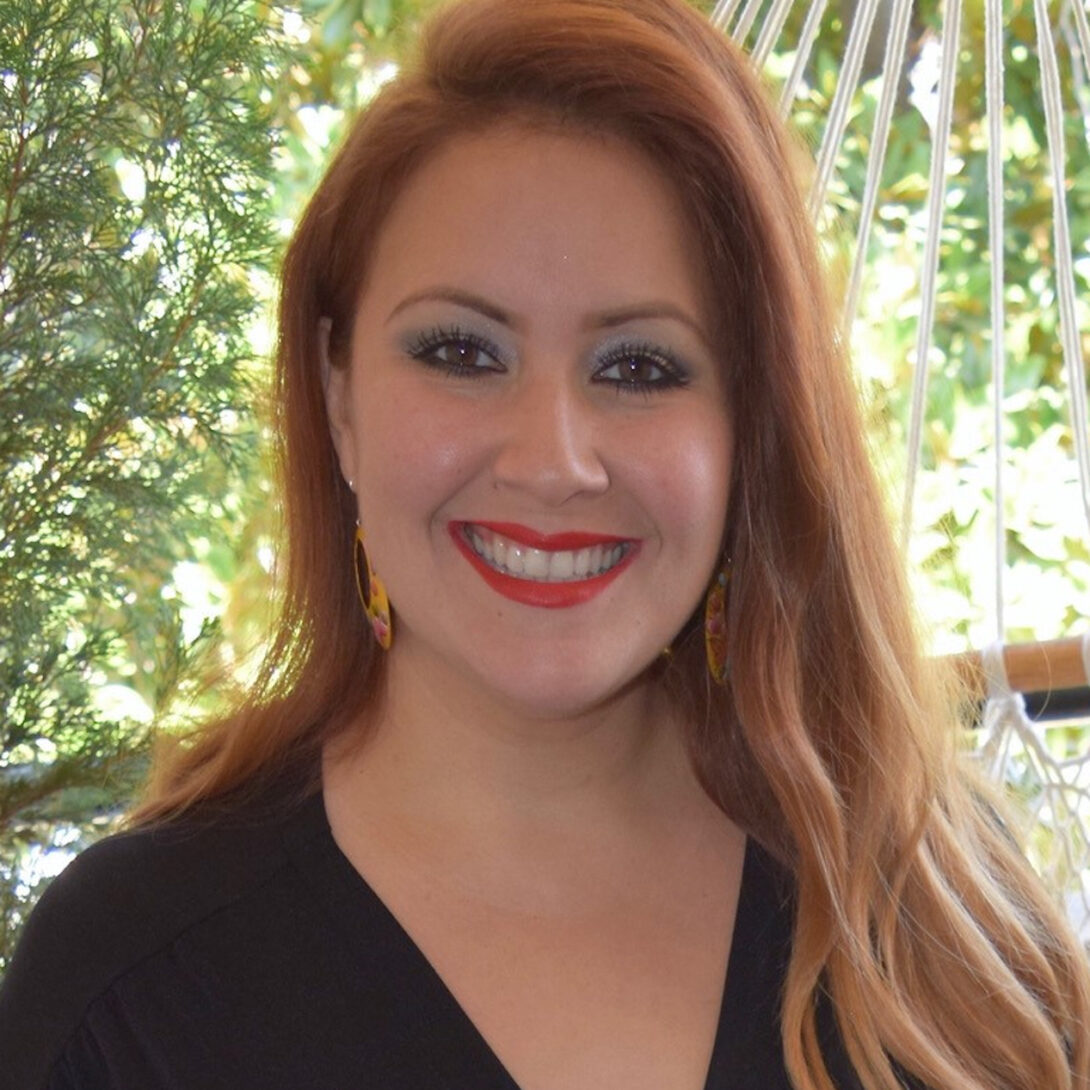
Morayma Flores-Higinio is a PhD student in the Ethnic Studies department at the University of California, Riverside and an inter-disciplinary alumna from California State University, San Marcos. Her dissertation research intervenes in larger global political and social justice dialogues that have largely centered on urban social justice movements. Consequently, her work pays special attention to sustained organizing/activism within rural Latina/o/e enclaves. Flores-Higinio’s ethnographic research hopes to unearth how Latinas/os/es in the Northern borderlands’ region of San Diego, are and have historically practiced democracy, citizenship, and oppositional politics in spite of persistent vulnerabilities experienced under the neoliberal political milieu. Broadly, her research seeks to demonstrate how Latinas/os/es who are relegated to the marginalized corners of American society are seeking and building political and spiritual communities that struggle for social justice.
Mentor | Brenda Sendejo, Associate Professor, Feminist Studies
Southwestern University
JAVIER RAMIREZ FRANCO | University of Houston Heading link
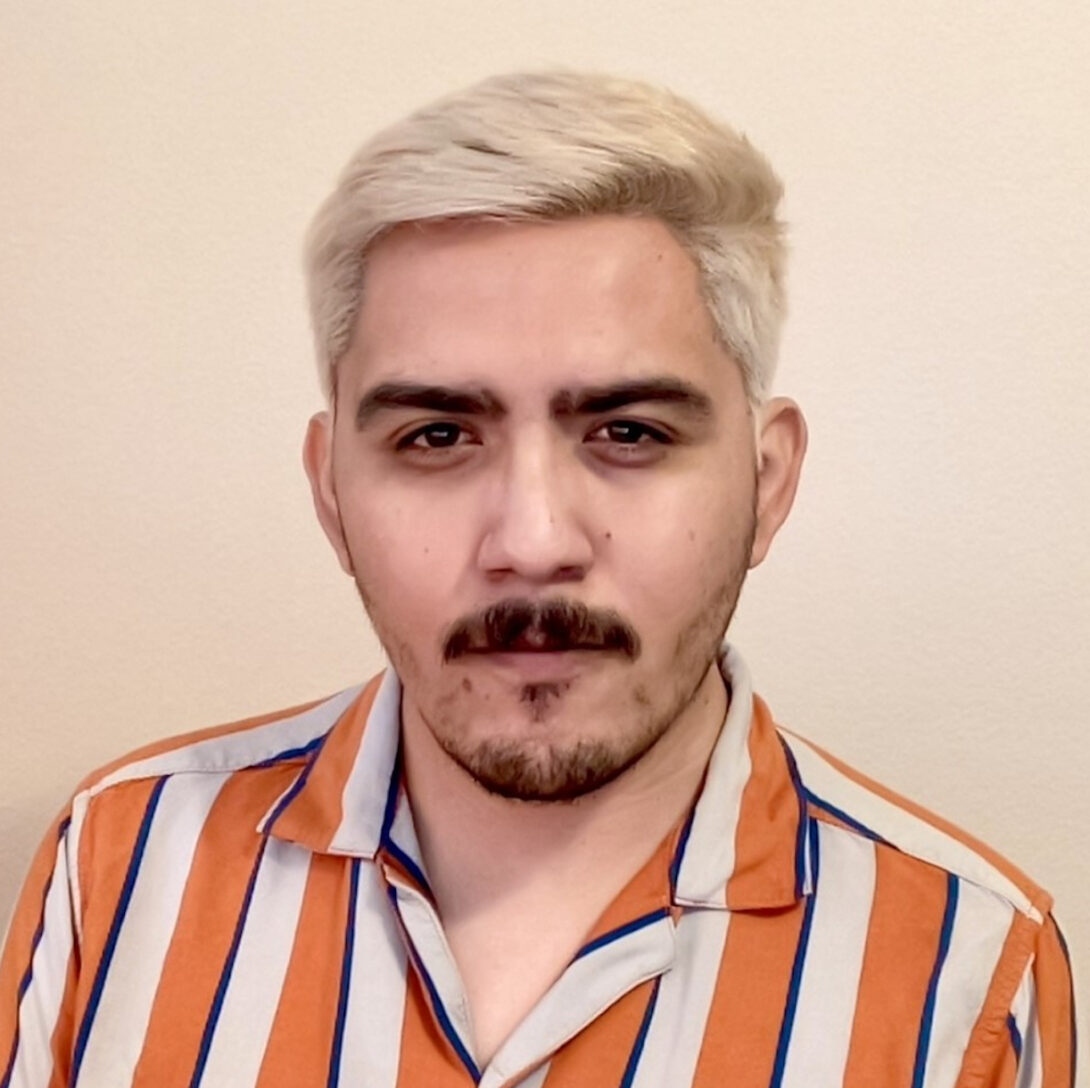
Javier Ramírez Franco is a Ph.D. student in Spanish Literature in the Department of Hispanic Studies at the University of Houston. His proposed research project focuses on the representation of drag queens in 20th and 21st century Mexican and Chicanx literature and culture. Additionally, his research interests include trauma studies, queer theory, film & media studies, and performance studies. He earned his B.A. in Spanish, an M.A. in Spanish, and a graduate certificate in Latin American studies from California State University, Long Beach.
Mentor | Lawrence La Fountatin-Stokes, Professor of Spanish,
American Culture, and Women’s and Gender Studies
University of Michigan
GINA GOMEZ | Florida International University Heading link
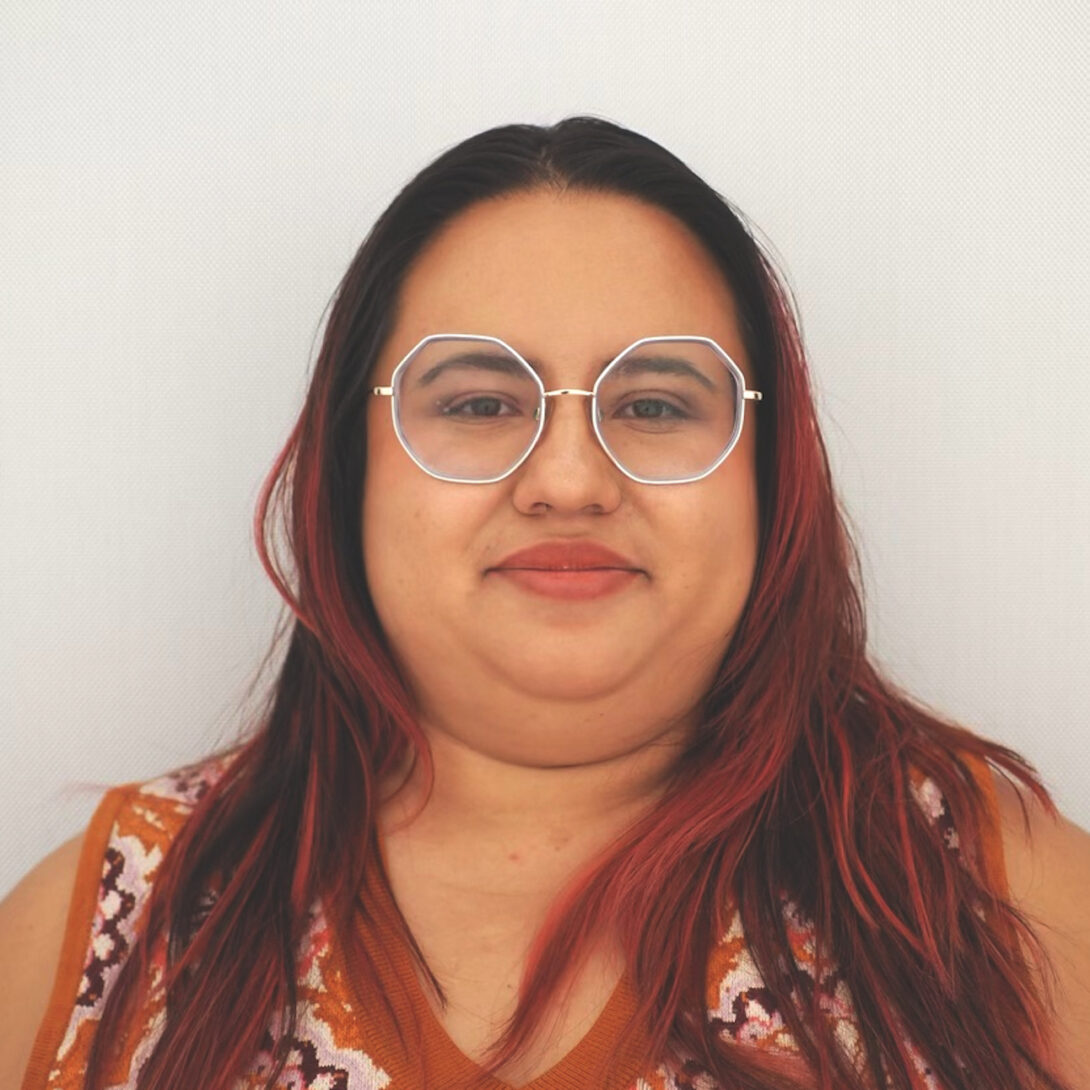
Gina Gomez is a first-generation college graduate and child of immigrants pursuing a Ph.D. in Global Sociocultural Studies at Florida International University. She received her master’s degree in Anthropology from the University of Miami in 2020. Her research is centered on access to healthcare for undocumented immigrant women, along with the ways these women engage in acts of necroresistance through alternative forms of care. As part of this project, she aims to use PhotoVoice to include the community and in a more collaborative effort. Overall, her work aims to address migrant women’s perspectives of healthcare and how institutions and policies affect their access.
Mentor | William D. Lopez, Clinical Assistant Professor
Health Behavior and Health Education
University of Michigan
ALEJANDRO R. GRANADOS-VARGAS | UC Irvine Heading link
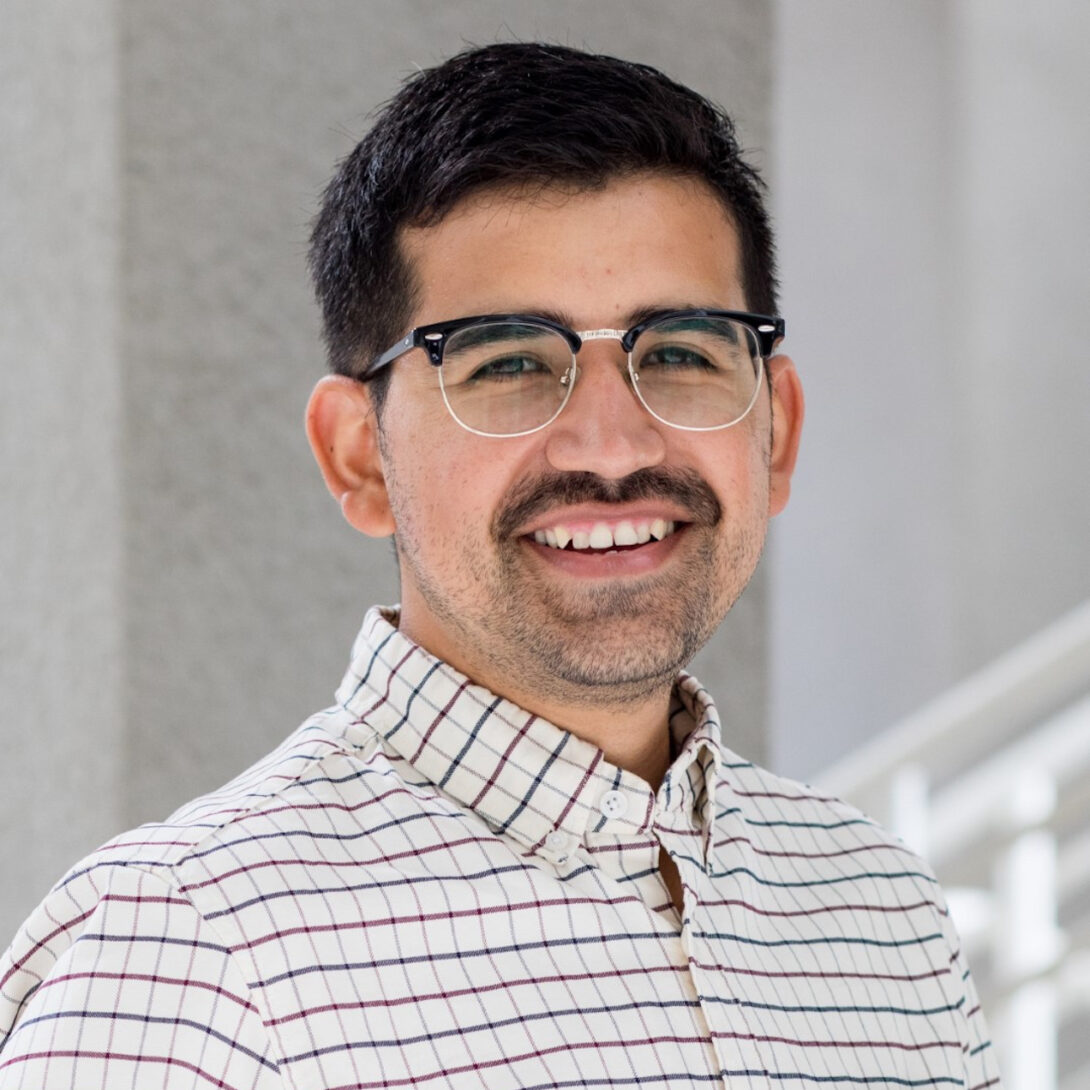
Alejandro R. Granados-Vargas (he/him) is a doctoral student at University of California, Irvine’s School of Education. He earned a B.A. in English and Linguistics at University of California, Berkeley and a M.A. in Speech-Language Pathology at The University of Texas at Austin. Alejandro is a first-generation Ph.D. student with roots in the state of Guanajuato, Mexico. He has worked in various education settings: after-school programs, school-age literacy, outdoor education, and speech-language therapy. His research interests include cultural variation in bilingual children’s language development. His current work focuses on the development of narrative skills in Spanish/English bilingual children.
Mentor | Betty Yu, Professor, Speech, Language & Hearing Sciences
San Francisco State University
NAIOMY GUERRERO | The Graduate Center, CUNY Heading link
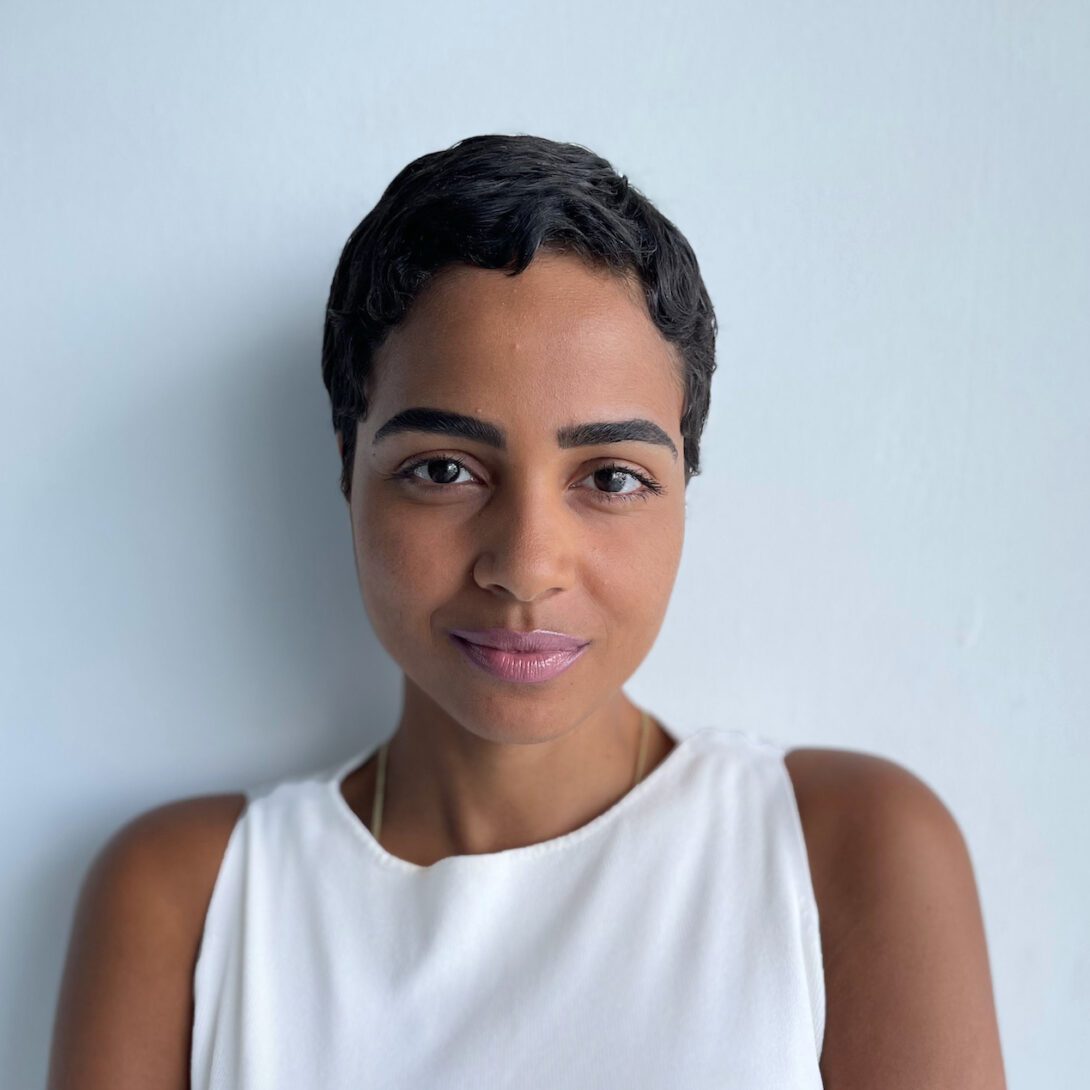
Naiomy Guerrero is an independent curator and art historian with a history of providing cultural strategy to museums, culturally specific institutions, arts-focused philanthropies, and universities. She is currently pursuing a PhD in art history at the City University of New York’s Graduate Center and is an art history instructor at the City College of New York. She is a Graduate Center Teaching Fellow, Posse Foundation scholar, and holds a B.A. in Art History from DePaul University. Naiomy was the inaugural Diversifying Art Museum Leadership Initiative Walton and Ford Foundation Curatorial Fellow at the Perez Art Museum of Miami (2018—2020), where she co-curated the Museum’s 35th Anniversary permanent collection exhibition The Gift of Art. She also co-organized the first Latinx Art Sessions to discuss the U.S. Latinx Art canon with scholars, art professionals, creatives, and the community at large in Miami. She has worked with the NYU Tisch School of the Arts, Twitter, Pulse Art Fair, National Young Arts Foundation, Latinx Project NYU, The New School, and the Walt Disney Animation Research Library. She has written for Artsy, ARTNEWS, Arts.Black, Leslie-Lohman Museum of Art, and the Bronx Museum of the Arts.
Mentor | Emilie Boone, Assistant Professor, Art History
New York University
AIDÉ HERNÁNDEZ | University of Illinois at Chicago Heading link
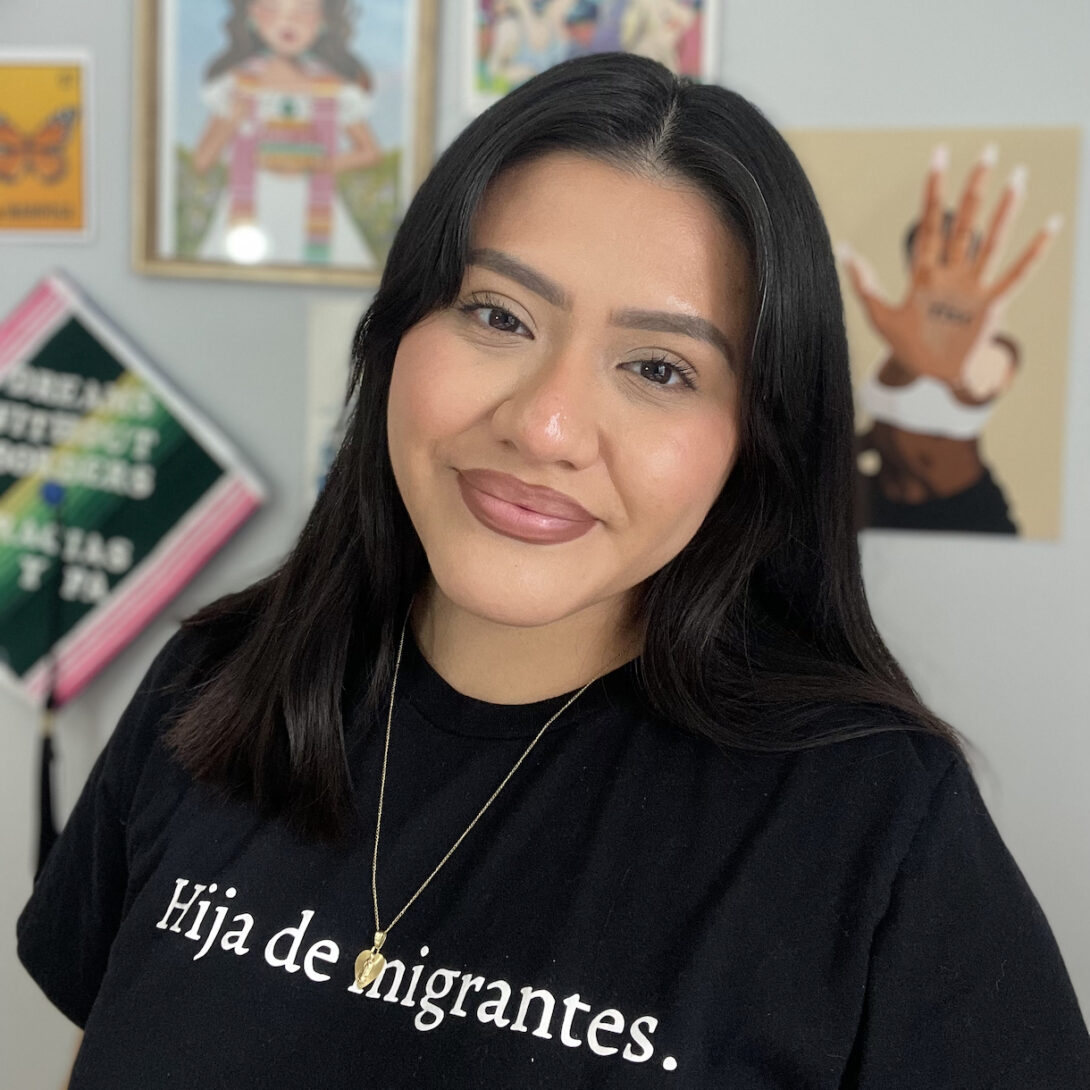
Aidé Hernández (she/ella) is the daughter of Mexican immigrants and was born and raised in Chicago. She is a first-generation Sociology PhD student with a concentration in Latin American and Latino Studies at the University of Illinois at Chicago. Her research focuses on spaces that create a sense of belonging for Latino/as. She has conducted qualitative work that explored practices that cultivated a sense of community within a social justice non-profit organization. Her current research is on the challenges and supports for Latina graduate students, with an exploration on how social media can serve as a digital space that creates a sense of belonging. She received a master’s in Sociology from the University of Illinois at Chicago, a master’s in Social Work from the University of Illinois at Urbana-Champaign, a Bachelors in Social Work and a Bachelors in Women and Gender Studies from Northeastern Illinois University.
Mentor | Magdalena Barrera, Vice Provost for Faculty Success
San Jose State University
BRITTNEY JIMENEZ | UC Santa Cruz Heading link
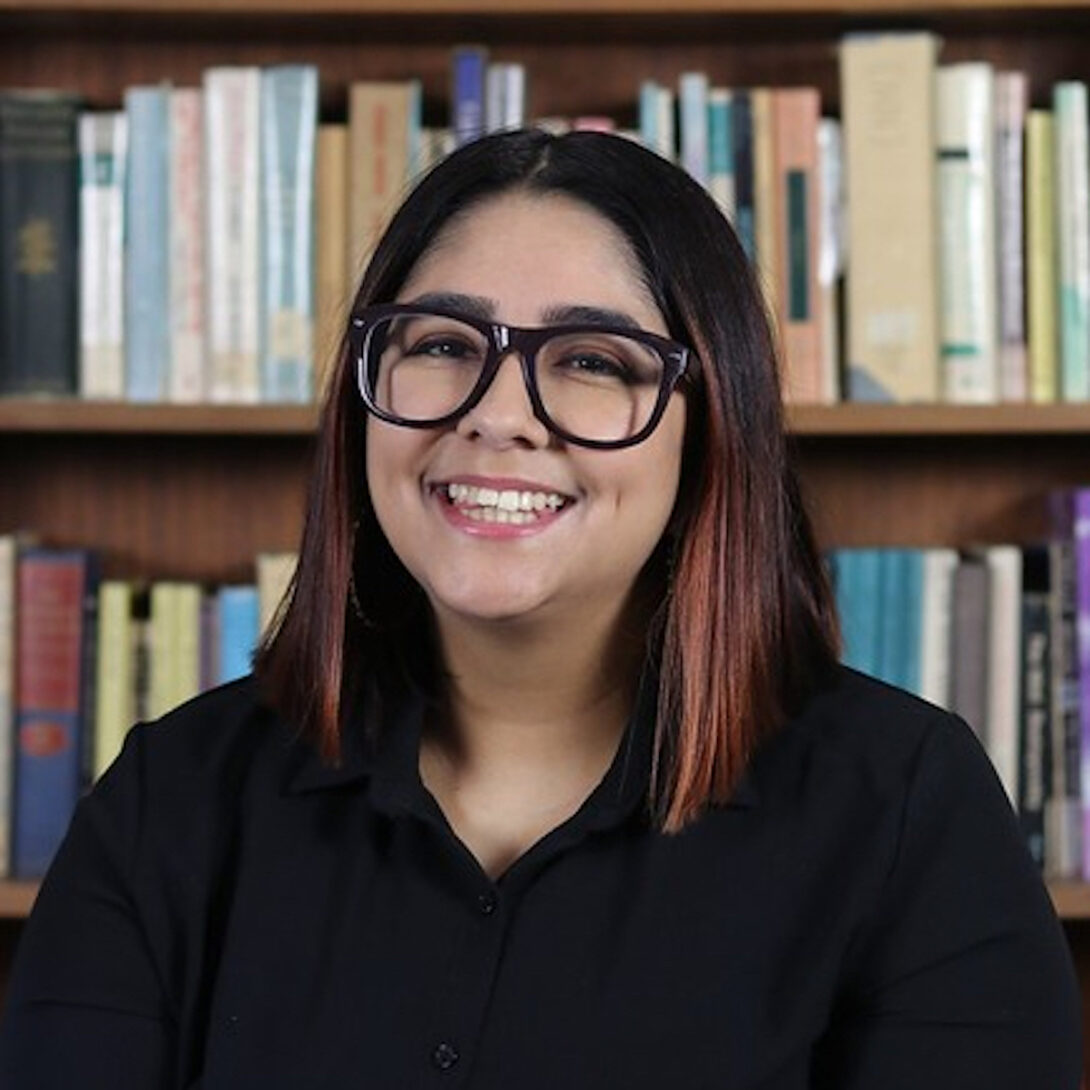
Brittney Jimenez is a first-generation Chicana from the San Fernando Valley. She is currently a Doctoral Student at UC Santa Cruz’s Latin American and Latino Studies Program with an intended designated emphasis in Critical Race and Ethnic Studies. She received an M.A. in 2021 from CSU Northridge in Chicana/o/x Studies and a B.A. from UC Irvine in Chicano/Latino Studies with a minor in Psychology. Her master’s thesis, ”Constructing Community: San Fernando Valley Youth and Community Activism,” focused on youth organizing in the San Fernando Valley, specifically the different routes through which youth become involved in social movements. Her current research looks at Chicana youth organizing, the present-day Chicana Movement, and the role of elders in organizing.
Mentor | Rocio R. Garcia, Assistant Professor, Sociology
Arizona State University
MARCOS DAMIÁN LEÓN | UC Riverside Heading link
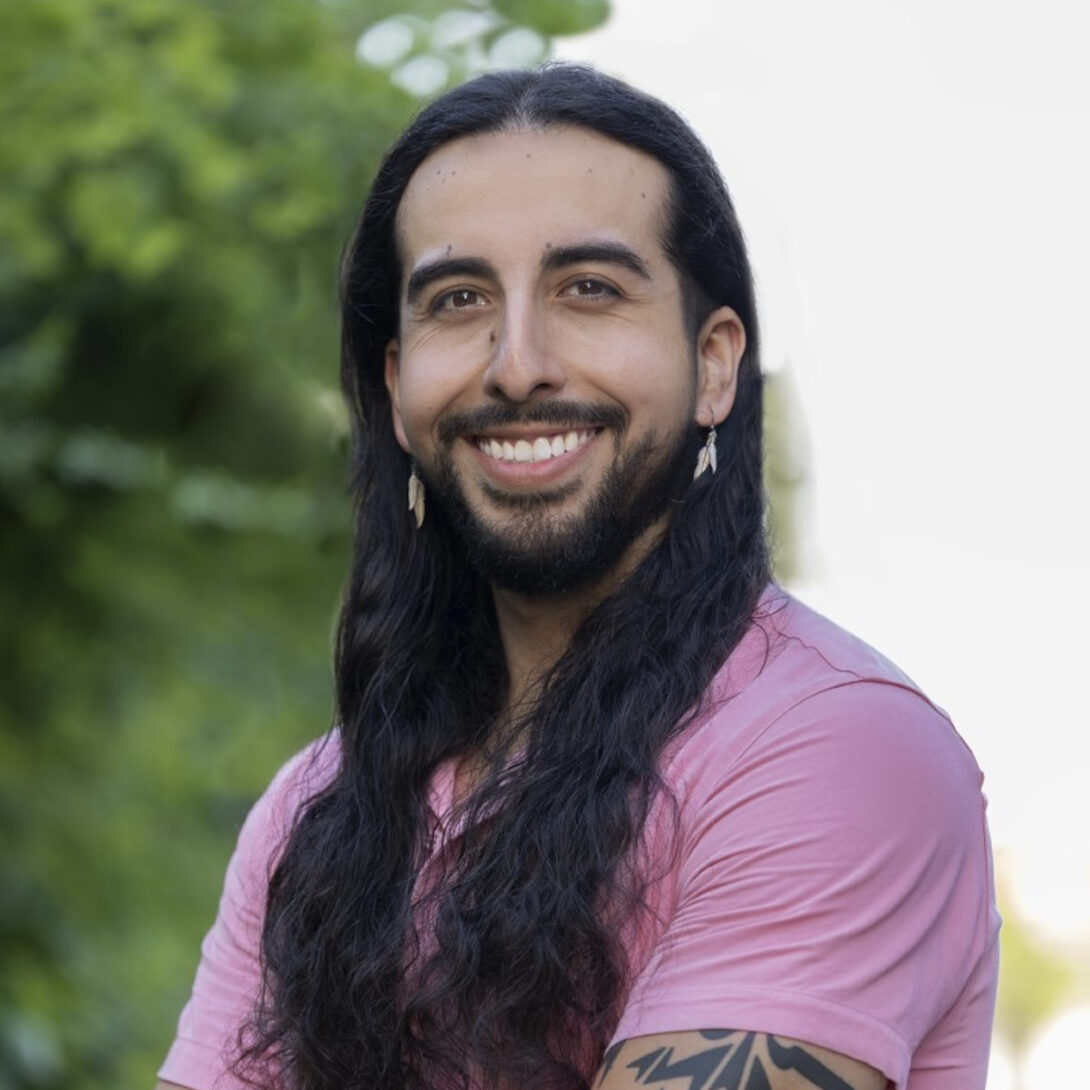
Marcos Damián León is a teacher and writer from the Salinas Valley. He holds an MFA from UC Riverside and is a PhD candidate at Texas Tech University. He is writing a novel about a pair of primos deciding what kinds of men they want to be. His academic work revolves around Latine race creation in the U.S. Southwest, Latine and Indigenous solidarity, and literary representations of Indigeneity in U.S. literature. His work is forthcoming in Night of Screams: Latino Horror Stories, and has appeared in LA Review of Books, Monterey County Weekly, and others.
Mentor | María Josefina Saldaña, Professor, Social and Cultural Analysis
New York University
ROCÍO IRENE MEJÍA | University of Texas at El Paso Heading link
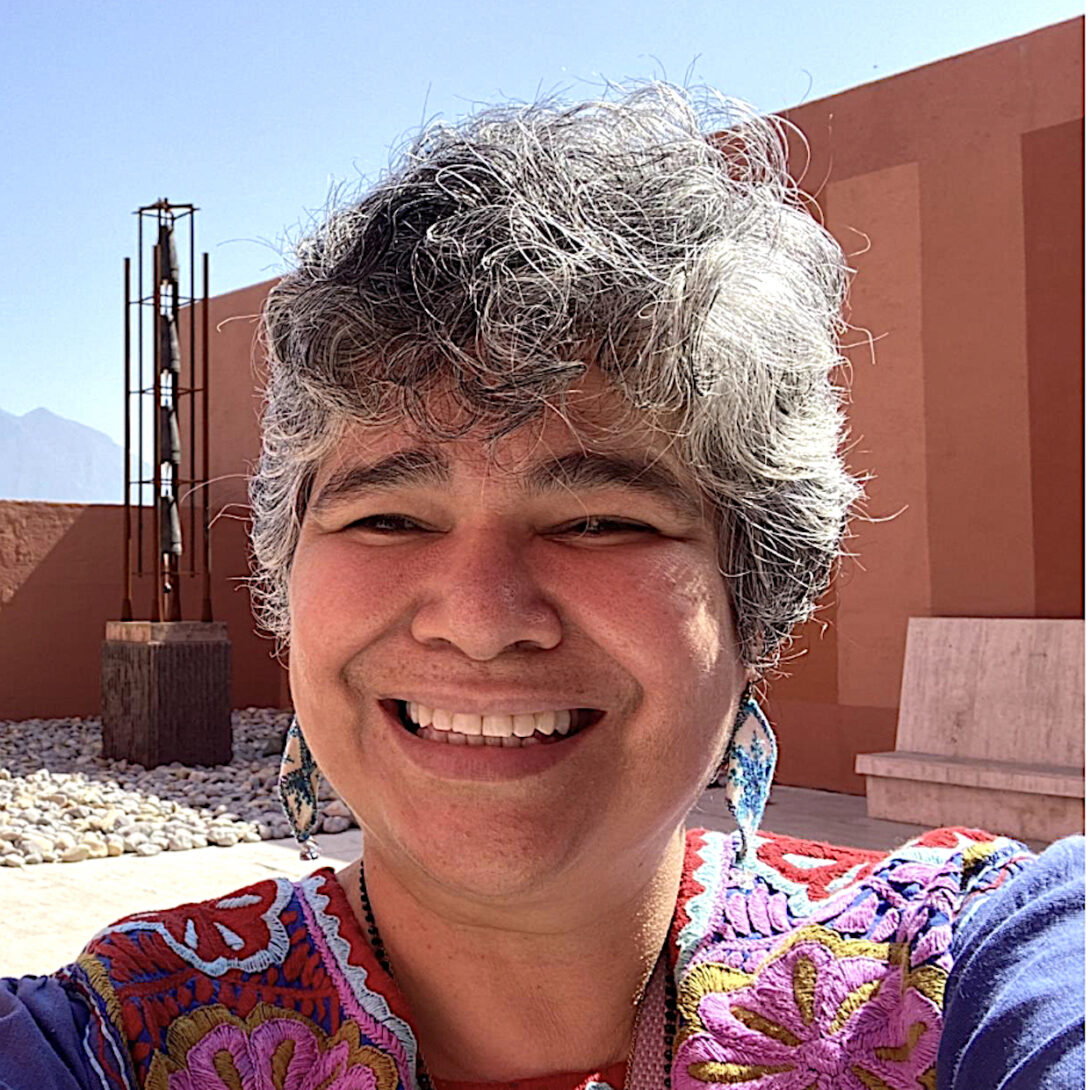
Rocío Irene Mejía is a native of Pihuamo, Jalisco, Mexico. She has a master’s degree in Hispanic Literature and a Specialization in Women Studies from El Colegio de México. She also holds an M.A. in Latin American and Border Studies from the University of Texas at El Paso. Her community research experience includes working in projects concerning gender violence, ecology, and reproductive health in rural and indigenous areas. At present she is a doctoral student in Borderlands History at UTEP and her dissertation project explores how the processes of discrimination, migration, and liberation converged in the bodies and lives of women who were killed in the contexts that lead to the consolidation of our borders to the Mexican Revolution; and how those processes/policies/practices have an impact on femicide in the area today.
Mentor | Bernadine Hernández, Associate Professor, English
University of New Mexico
MARIAH MENA | University of Nevada, Las Vegas Heading link
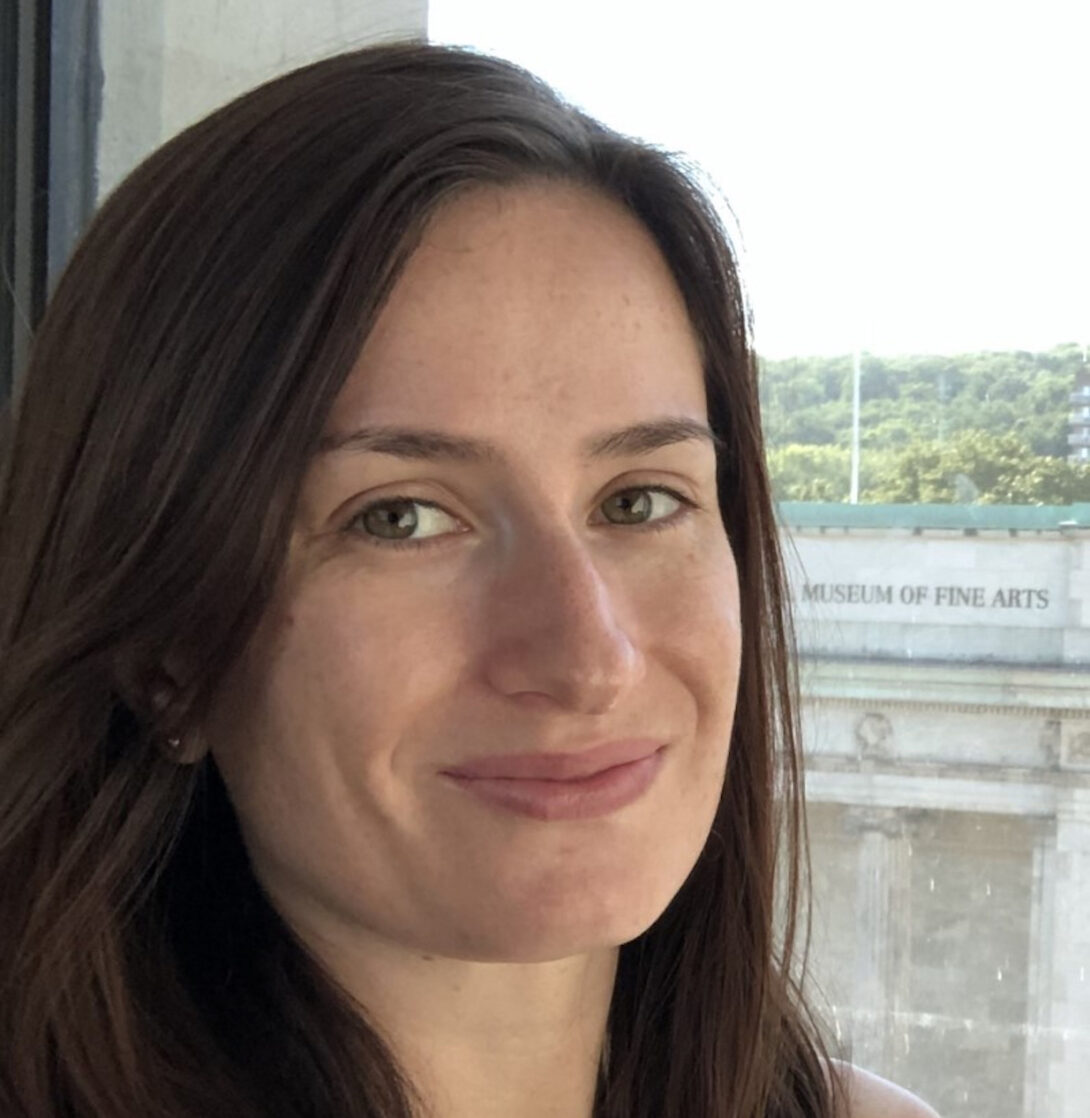
Mariah Mena is a second-year PhD student in the history program at the University of Nevada, Las Vegas. Her research interests center around 19th century North American Mexican migration and labor, specifically regarding the formation of mining communities in the U.S. West. She is also interested in identity formation and politicization in response to the loss of cultural autonomy after the signing of the Treaty of Guadalupe-Hidalgo. Mariah has been involved in several public facing research projects and exhibits which aim to improve communal access to Latino/Hispanic history in the United States.
Mentor | Samuel Truett, Associate Professor, History
University of New Mexico
MICHELLE ALEJANDRA MIRELES | UC Santa Barbara Heading link
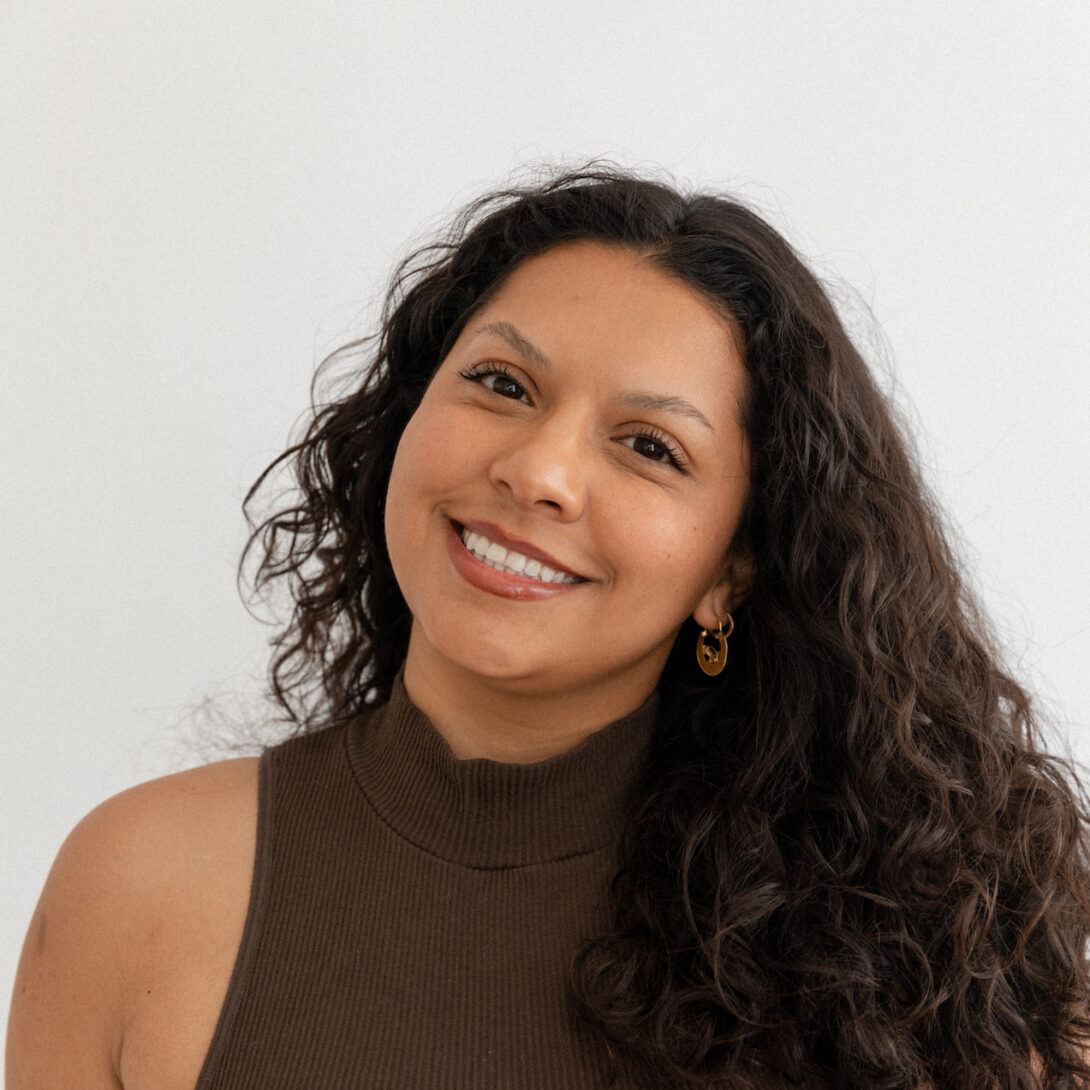
Michelle Alejandra Mireles is a doctoral student in the Department of Feminist Studies at University of California Santa Barbara. Her work explores questions of race, gender, sexuality, colonialism, and capitalism through aesthetic movements in fashion, beauty, and digital visual cultures. Her master’s thesis “Paisa Aesthetics: Streetwear Fashion and Latinx Aesthetic Labor” conceptualizes paisa as analytic to theorize the un/organized creative labor of Latinx and Chicanx fashion designers, identity formation, and belonging. “Paisa Aesthetics” received the 2022 Charlotte Stough Memorial Prize for innovative scholarship in Feminist Studies and was the UCSB entrant to the Western Association of Graduate Schools/Proquest Distinguished Master’s Thesis Competition 2022. She is currently meditating on the materiality of queer Chicanx content creation through an analysis of paisa aesthetic practices online, how they queer the heteronormativity and market logics of the algorithm and thumbing as brown queer embodied labor. She is co-founder of the Queer Arts Collective at UCSB which seeks to carve out a space on campus for queer and theory informed art practice through performance art, visual art, zine making, and creative writing.
Mentor | Deborah Vargas, Associate Professor, Women’s Gender, and Sexuality Studies
Yale University
ANGIE BELEN MONREAL | UC Irvine Heading link
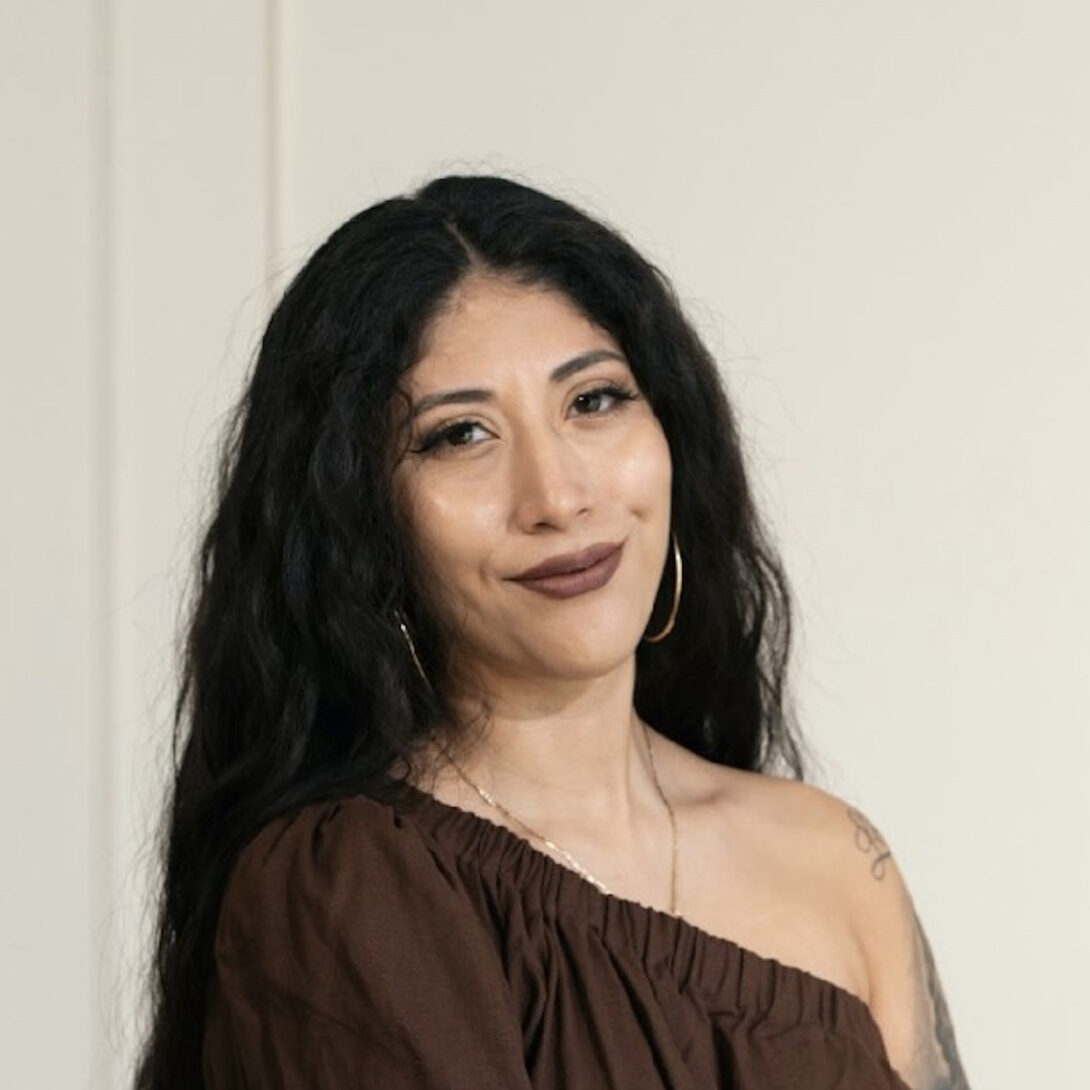
Angie Belen Monreal (she/her) is a sociology PhD student at the University of California, Irvine. She has a M.S.W from Columbia University and a B.A. in sociology from UCLA. Her research interests include Immigration, deportation, incarceration, and reentry. Currently, Angie’s project focuses on how the U.S. southern border impacts migrant’s bodies, minds, and spirituality. Outside of academia, Angie is a member of a mutual aid collective called Abolition Now OC, where they support people being released from OC jails.
Mentor | Vilma Ortiz, Professor, Sociology
University of California, Los Angeles
BIANCA MORÁN | The Graduate Center, CUNY Heading link
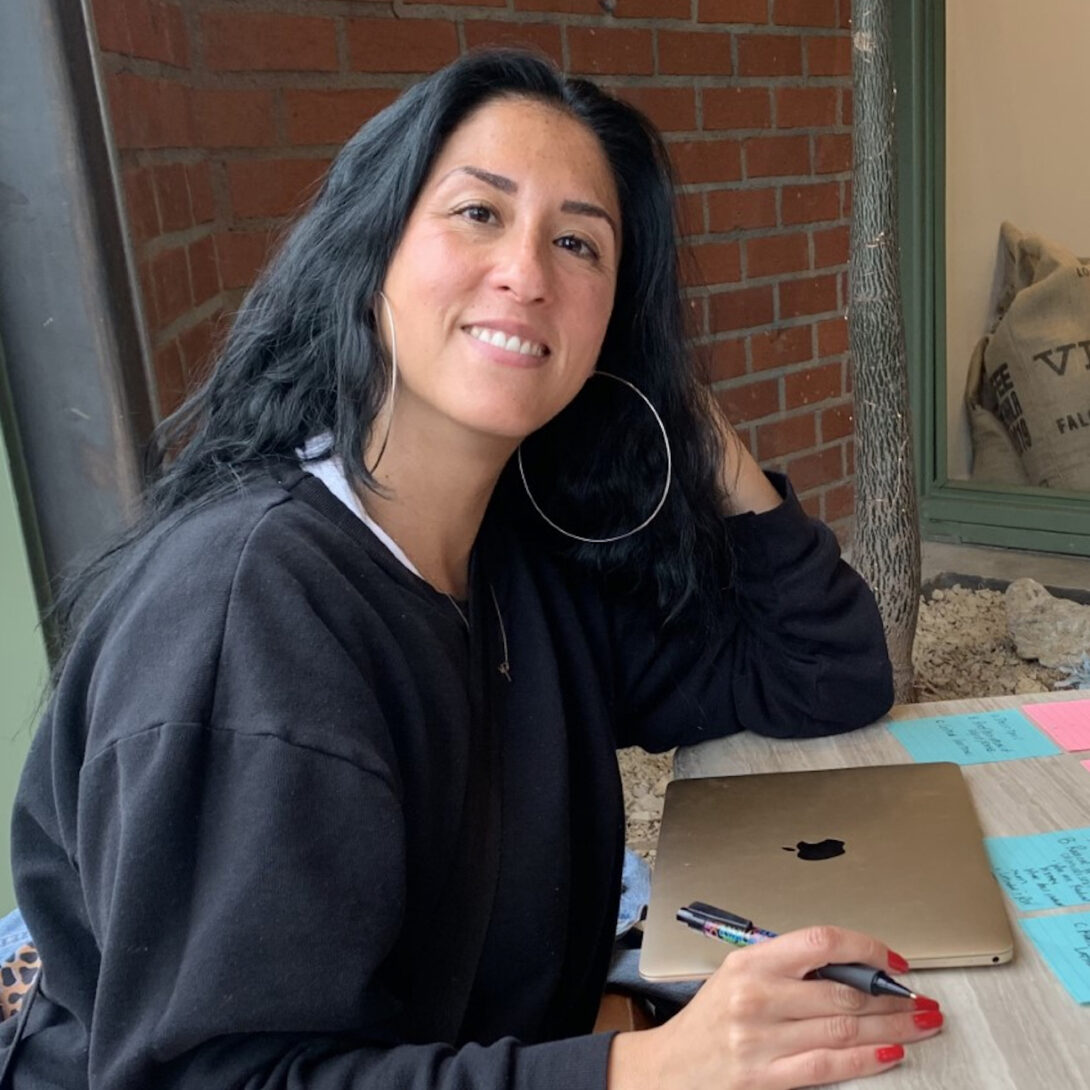
Bianca Morán is a Ph.D. student in Art History at The Graduate Center, CUNY where she is specializing in Modern and
Contemporary Art of the Americas and is pursuing a certificate in Africana Studies. Her master’s thesis was titled: “The Trouble with Radical Women: Anti-Blackness, Latinidad and Contemporary Curating” which built upon her longstanding
engagement with the Black Atlantic as the unit of analysis for Modern art practices of the Americas. Bianca is also a curator, educator, and writer. A former K-16 educator in Los Angeles, her work is deeply informed by her training in culturally relevant and responsive pedagogy. Her research interests include political theory, critical race theory, foodways, diaspora, the Atlantic world, race and colonialism, critical studies, museum pedagogy, Latinx visual culture and film.
Bianca holds an M.A. in Curatorial Practices and the Public Sphere from the University of Southern California, an M.Ed. in Education from UCLA, and a B.A. in Political Science with a minor in Ethnic Studies from UC Berkeley.
Mentor | Adriana Zavala, Associate Professor
Tufts University
Mellon Professor, National Gallery of Art
ALEXIA PALOMINO-CORTEZ | University of Illinois at Chicago Heading link
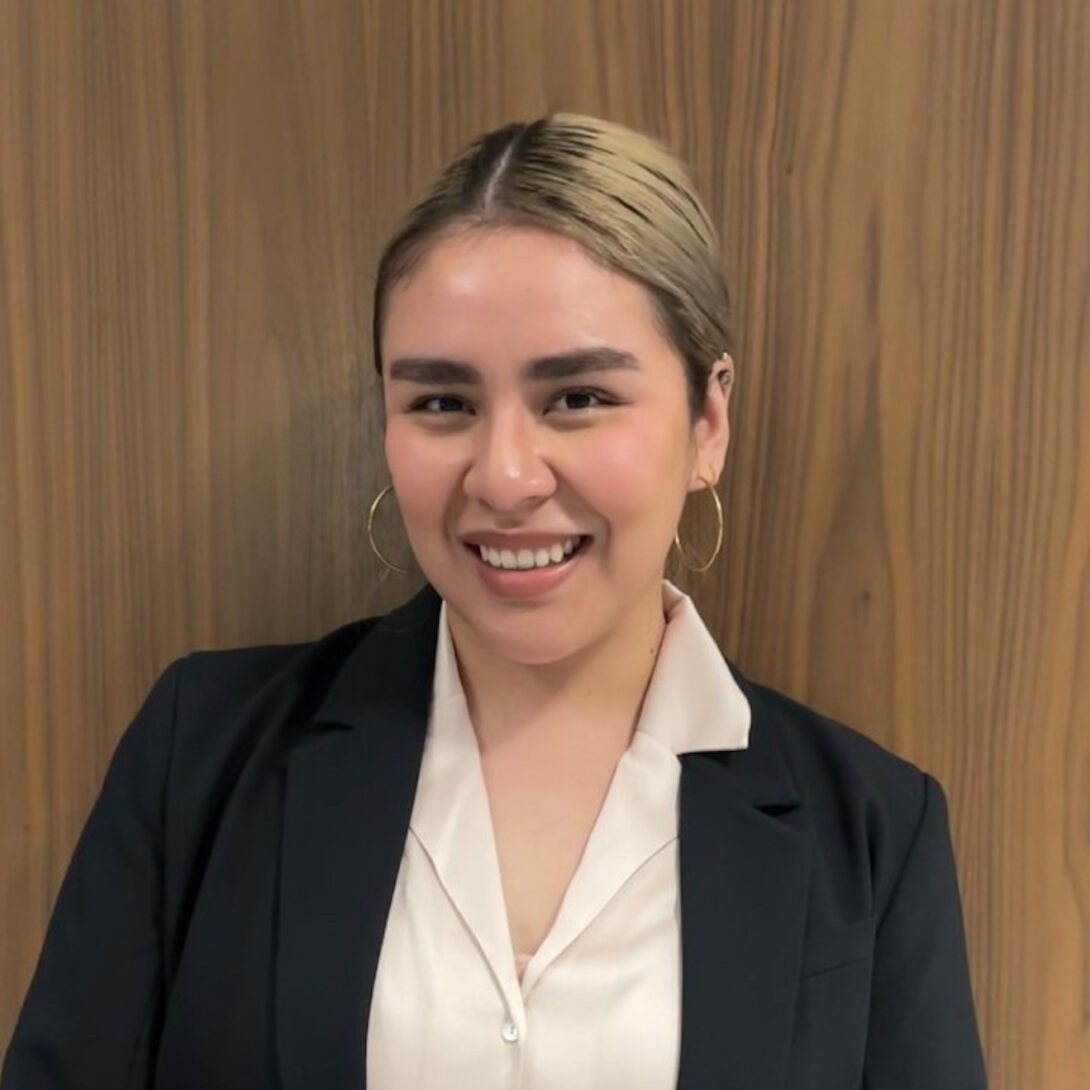
Alexia Palomino-Cortez (she/ella) is a third-year PhD student at the University of Illinois at Chicago (UIC). She was born and raised in Los Angeles to an indigenous family from Puebla, Mexico. She holds a bachelor’s degree in Sociology from Loyola University Chicago and a Masters in Sociology from UIC. Her research focuses on the intersection of Latinx ethno-racial identities, policing, and legal studies. Her current research focuses on understanding how Latino police officers navigate an occupation and space that is typically associated with whiteness.
Mentor | Amada Armenta, Associate Professor
Urban Planning, Luskin School
University of California, Los Angeles
RUBEN PAQUIAN | University of Texas at El Paso Heading link
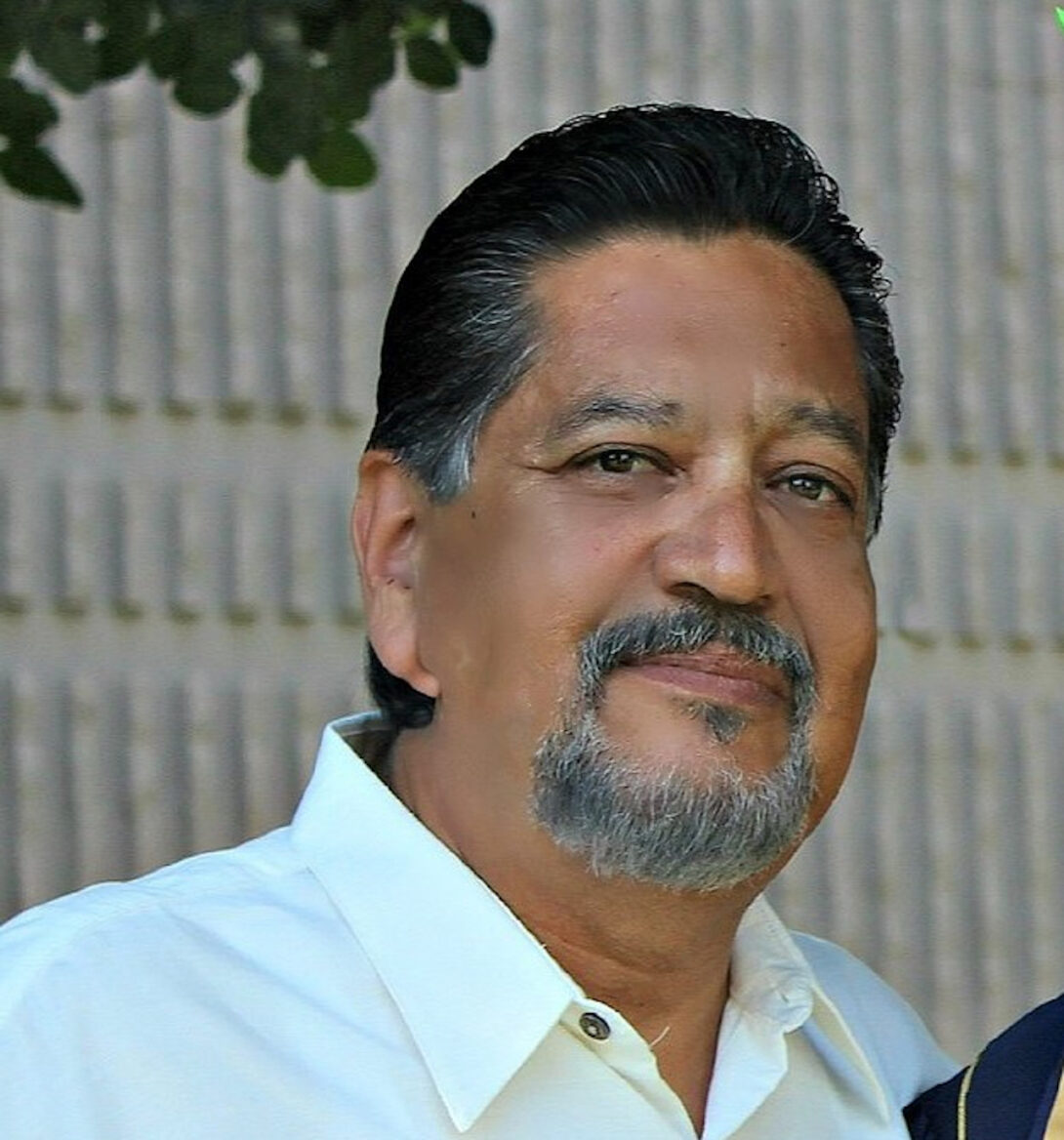
Ruben Paquian is a 2nd year Ph.D. student in Rhetoric and Composition at the University of Texas, El Paso (UTEP). He has a B.A. in English from San Diego State University, an M.A. in Organizational Leadership from Brandman University, and an M.A. in Rhetoric and Writing Studies at UTEP. He is a career veteran, having served in the United States Navy for 30 years. He currently teaches Rhetoric & Composition, and WorkplaceWriting at UTEP. His thesis, An Autoethnography of a Non-Traditional Student Veteran, focused on his academic journey after completing his service, which has led to his current research on disability studies related to Latina/o veterans and active-duty personnel in the United States Armed Forces through a Critical Disability and Latino Critical Theory lens. He continues to explore how the recurrent stigmatization of Military Sexual Trauma (MST), Post Traumatic Stress Disorder (PTSD), Traumatic Brain Injuries (TBI), and mental health have affected the Latino/a active duty and veteran population in the Borderlands.
Mentor | Laura Gonzales, Assistant Professor, Digital Writing and Cultural Rhetoric
VANESSA RAMIREZ | University of North Texas Heading link
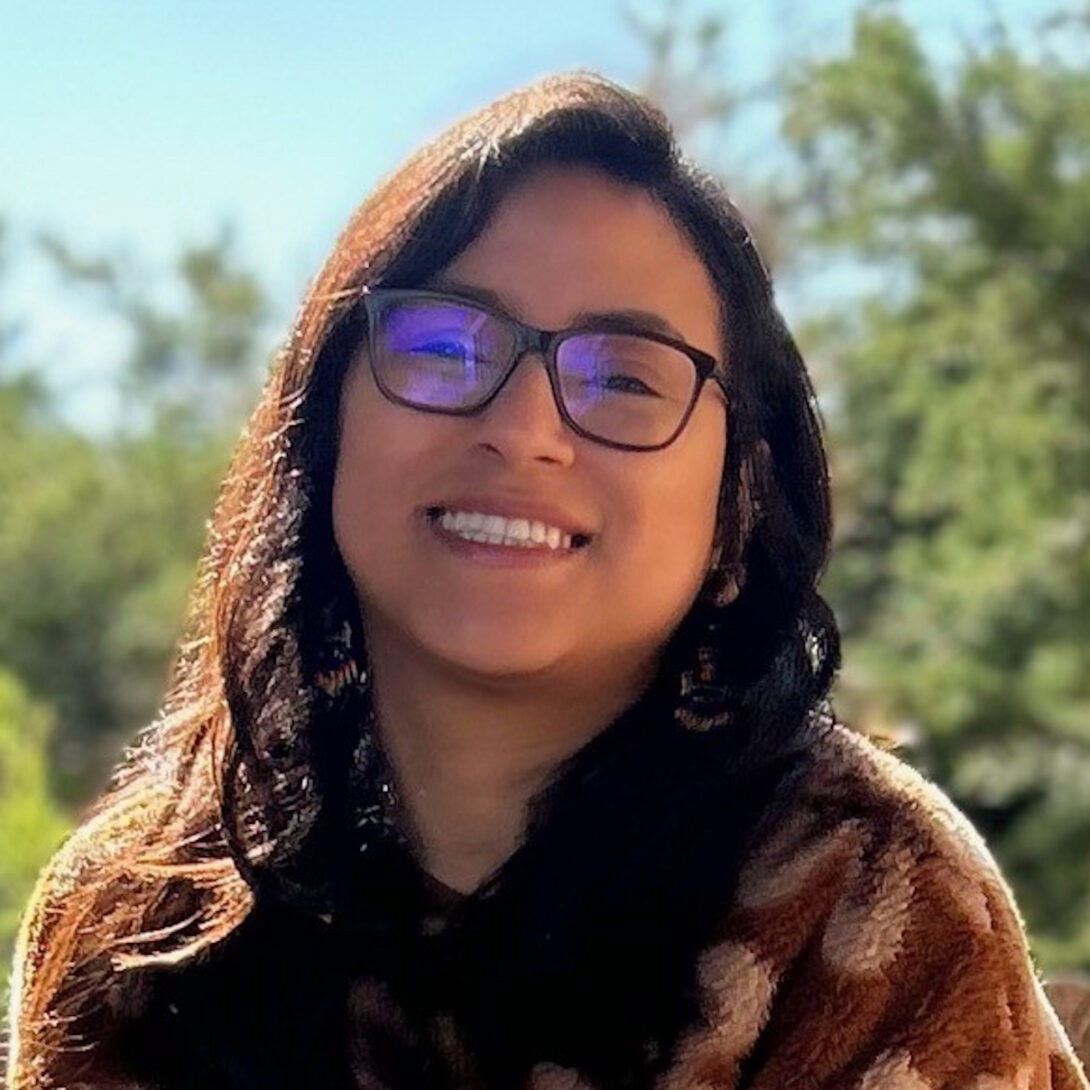
Vanessa Ramirez is a Mexican American student at the University of North Texas pursuing a Ph.D. in Latinx Literature and Feminist Theory. Her current research focuses on exploring how to intersect Latinx literature and advocacy that stems beyond the classroom. Due to the political and environmental climate, she is interested in inviting advocacy and action that comes from the important themes studied in Latinx literature. In Houston, where she was born and raised, she received a B.A. in English with a Creative Writing Concentration and an M.A. in Rhetoric and Composition at the University of Houston-Downtown. In addition to her academic studies, Vanessa indulges in her passion for teaching. She teaches First-Year Writing and advocates for her students’ right to their own language, freedom of expression, and mental health.
Mentor | Maria E. Cotera, Associate Professor, Mexican American and Latina/o Studies
University of Texas at Austin
LUIS RAMIREZ-MACIN | UC Santa Barbara Heading link
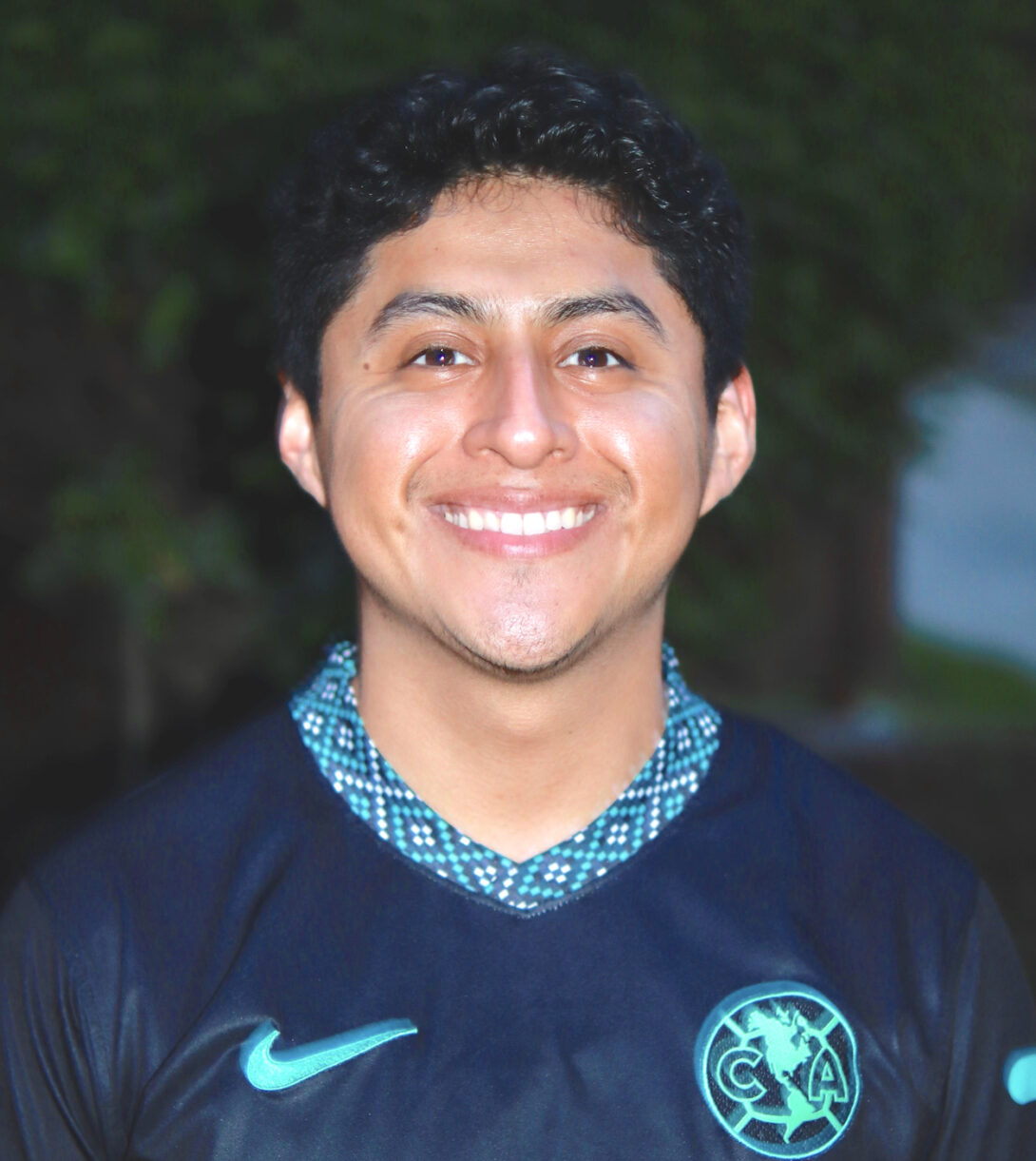
Luis Ramirez-Macin (he/him) is a doctoral student in the Department of Chicana and Chicano Studies at the University of California, Santa Barbara (UCSB). He received his B.A. in Chicana and Chicano Studies from UCSB and has worked as a barber. He is a first-generation Chicano and comes from a street vending family that works out of South-Central Los Angeles and Southern Los Angeles County. His research is informed by his street vending experience and looks at street vending youth, the informal economy, and street vendors’ role within digital media.
Mentor | Leigh-Anna Hidalgo, Assistant Professor
Ethnicity, Race and Migration
Yale University
FABIAN REBOLLEDO | University of Nevada, Las Vegas Heading link
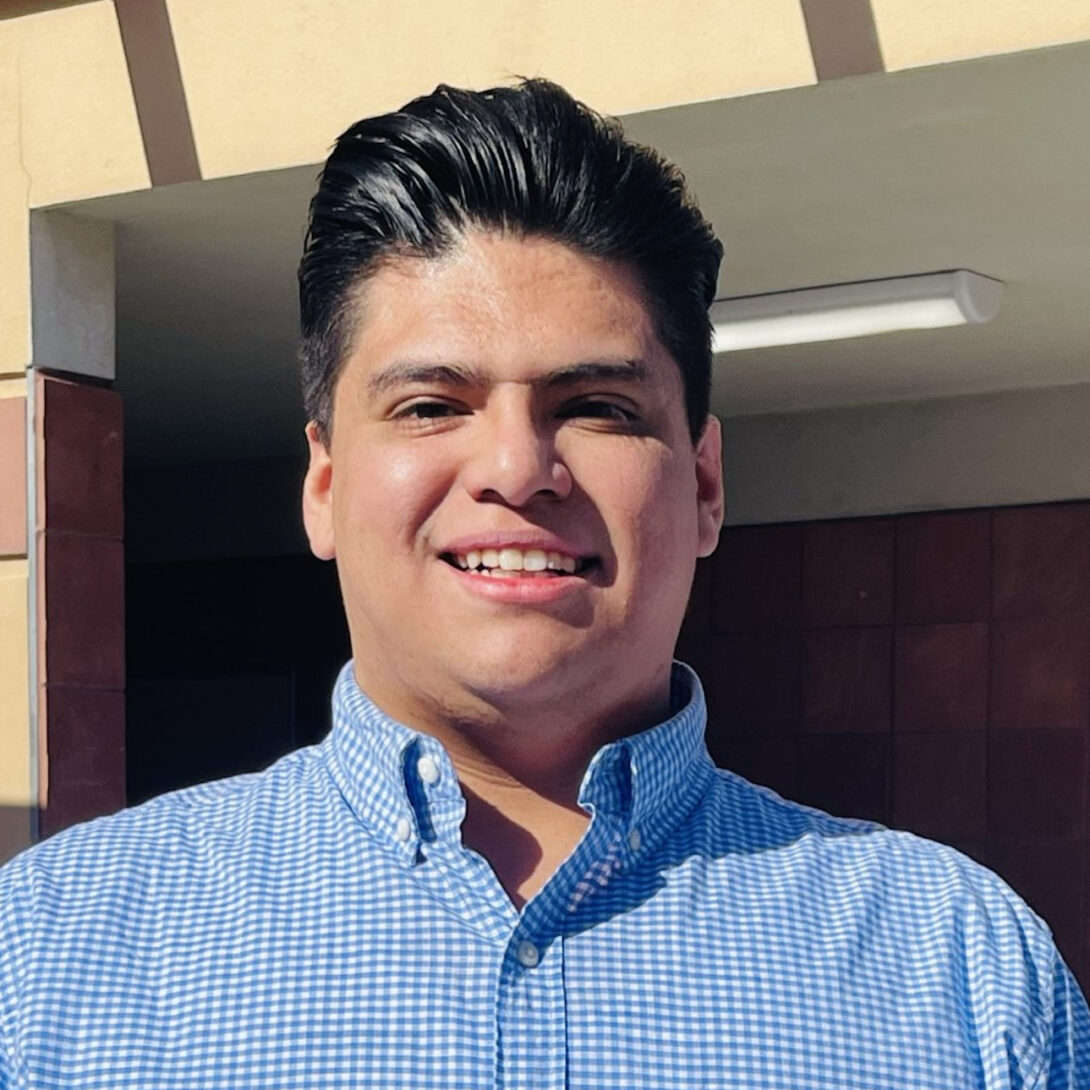
Fabian Rebolledo is a non-traditional, first-generation student who hails from Las Vegas, Nevada. He received his Bachelor in the Arts of History from Nevada State College and is pursuing a Ph.D. in History from the University of Nevada, Las Vegas, in the post-baccalaureate program. His concentration lies in the North American West, focusing specifically on the Southwest borderlands, Mexican equestrian culture, and Mexican and Mexican American Identity. His research interests are grounded in identifying and interpreting the cultural traditions rooted in vaquero culture both within Mexico and throughout the American West. He aims to showcase the adaptations and incorporations of charrería in popular American culture and explore how rodeos often ignore this culture in contemporary “American” rodeo events.
Mentor | Romeo Guzmán, Assistant Professor
History
Claremont Graduate University
REBECA RIVAS | University of Texas at El Paso Heading link
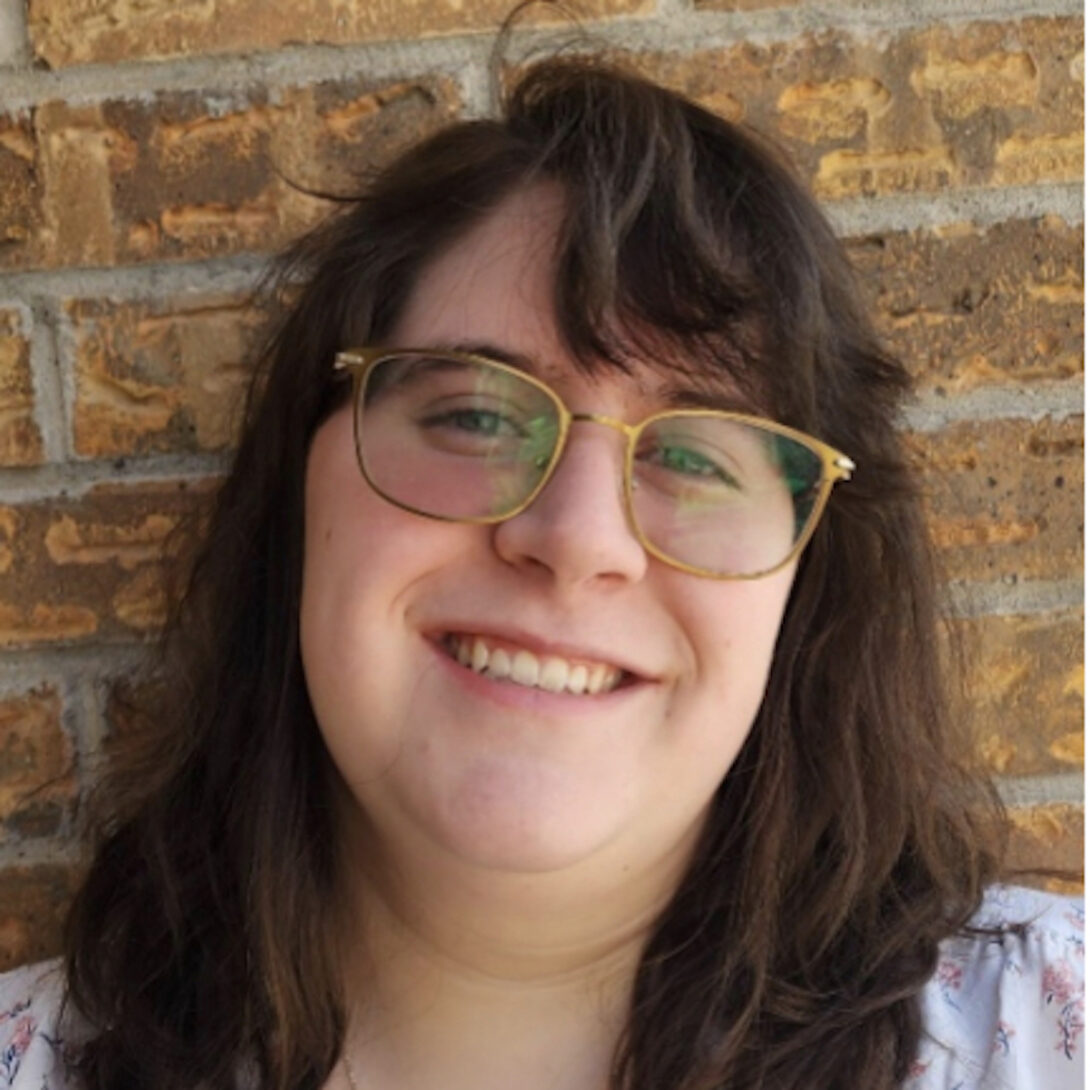
Rebeca Rivas is a Ph.D. student in the history department at the University of Texas at El Paso. She received bachelor’s and
master’s degrees in political science from the University of Texas at El Paso. Her current research focuses on the relationship between sport and community building. Her themes include sports, culture, community, and identity, focusing primarily on Lucha libre in El Paso, TX, and Ciudad Juárez, Chihuahua.
Mentor | José M. Alamillo, Professor
Chicana/o Studies
California State University, Channel Islands
DIANNA A. TAYLOR | University of Arizona Heading link
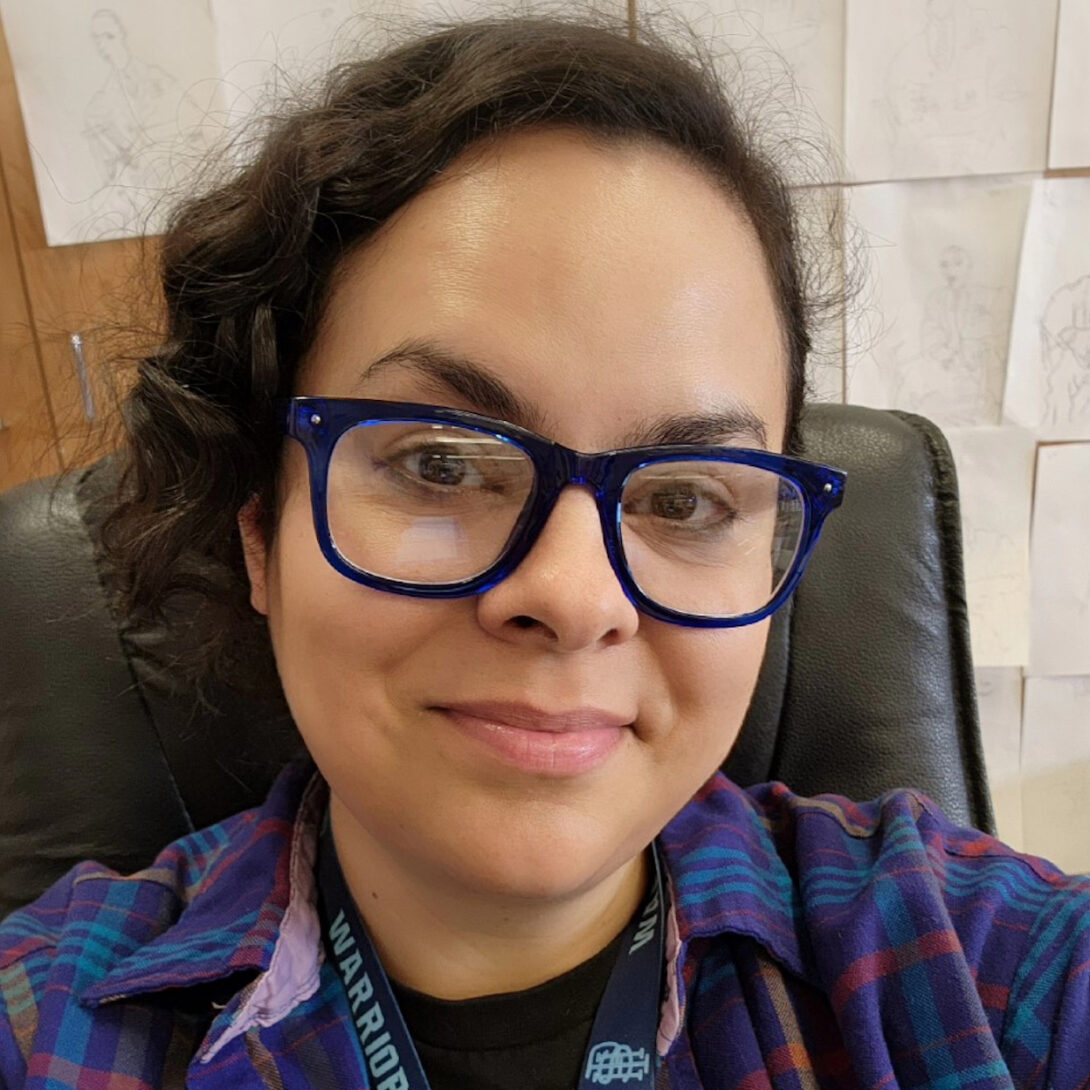
Dianna A. Taylor is a 3rd year Mexican American Studies PhD Student at the University of Arizona, high school art teacher and artist. Her research interests explore how contemporary Xicanx art speaks to, is inspired by, and aids in the survival of the still-living Mesoamerican pre-colonial writing systems and knowledges. By participating in the creative process through arts-informed research, her aim is to produce artwork that embodies this knowledge in a holistic way. Past projects include working alongside Dr. Patrisia Gonzales, curating and creating art for a traveling pop-up botanica exhibition that explores enduring Indigenous medicine. Her future dissertation project would examine the murals at El Rio Community Center, a public project born out of the Chicano movement in Tucson, AZ, and create new art within this space that is in dialogue with them.
Mentor | Dylan AT Miner, Dean and Professor
Residential College in the Arts & Humanities
Michigan State University
JUAN CARLOS VALADEZ | UC Riverside Heading link
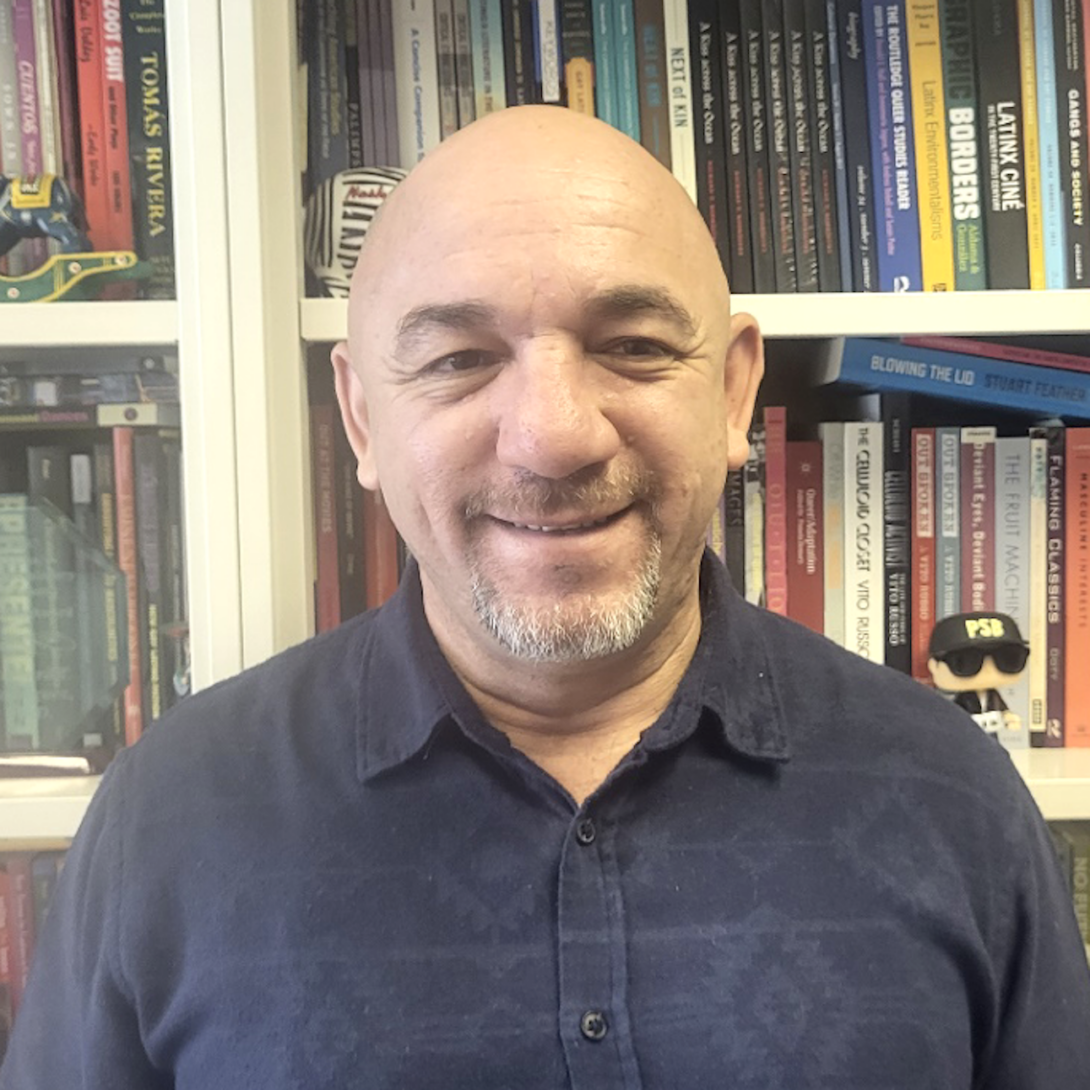
Juan Carlos Valadez is a second-year doctoral student at the University of California, Riverside in the Department of English. He received his B.A in English with an emphasis in Creative Writing, poetry, from UCLA in 2007. In 2019, he received his master’s in English literature from Cal State University, Dominguez Hills. His M.A thesis titled “Incarceration, Dehumanization, and Transportation of Trauma: Liberation in the Prison Poetry of Ricardo Sanchez, Raul Salinas, and Jimmy Santiago Baca” closely examines how each poet moves through heir writing to gain freedom from “permanent incarceration.” Paying attention to Foucault’s concept of the panopticon and Althusser’s ideology and interpellation, Juan Carlos structures an argument founded on complexities that arise out of incarceration. His current dissertation topic examines the politics, aesthetics, and marginalization of Chicana Pinta (prison) poetry and its erasure. Juan Carlos is a resident of the unincorporated area of Florence-Firestone in South Central Los Angeles.
Mentor | Michael Roy Hames Garcia, Professor
Mexican American & Latina/o Studies
University of Texas at Austin
BERNARDO VARGAS | University of North Texas Heading link
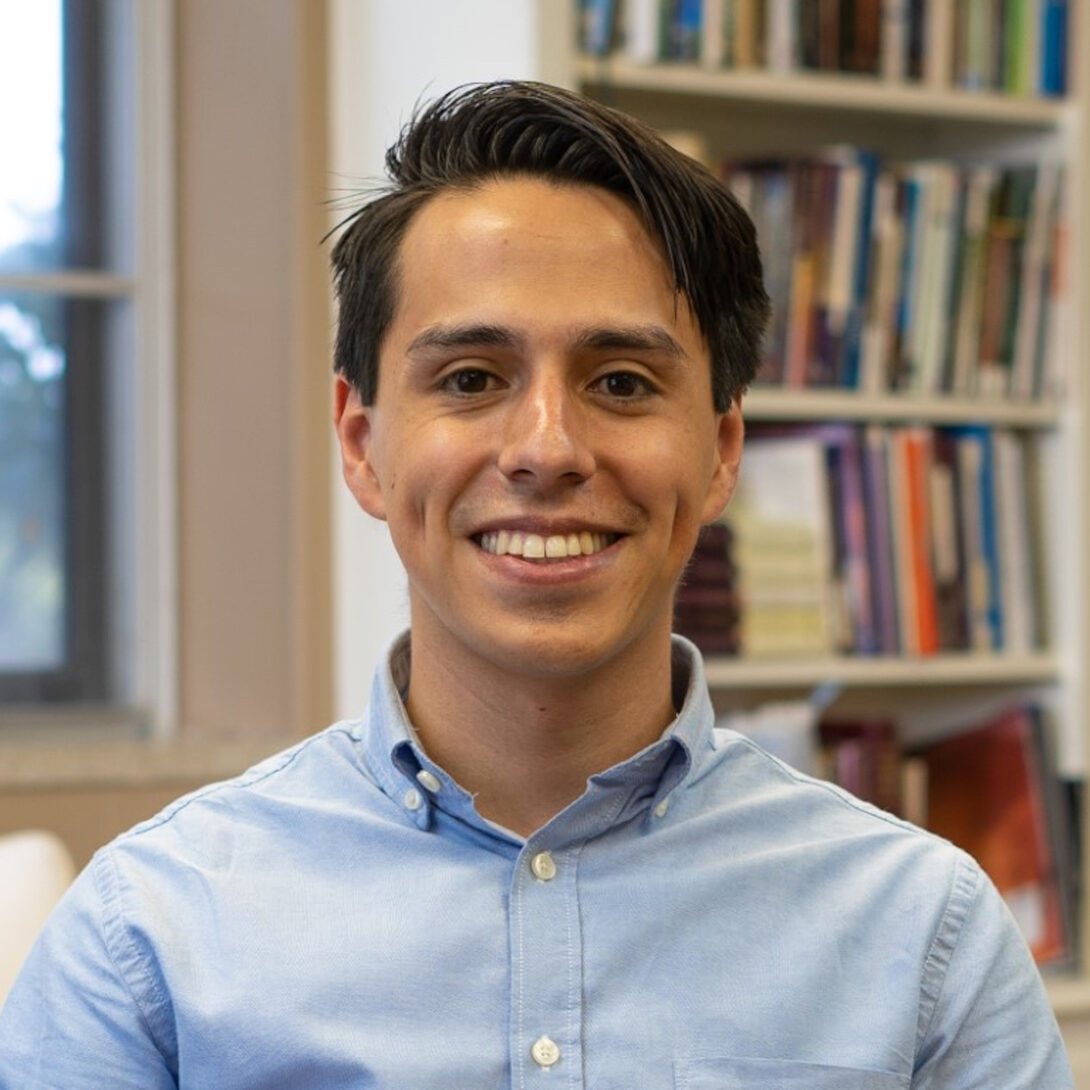
Bernardo Vargas is a second-year Ph.D. student of Philosophy at the University of North Texas. His primary areas of research center on questions of oppression and liberation, particularly about racial identity, racism, and environmental justice as they relate to Mexican Americans and Latinxs in the United States. He informs his approach from multiple rich disciplines: Africana Studies, Indigenous Studies, Decolonial Theory, and Latinx Studies. He particularly engages with History, Sociology, Critical Race Theory, and Latino Critical Legal Theory within these broader disciplines. An environmental justice approach integrates his concern with the ongoing history of environmental racism toward BIPOC, namely Latinxs, and their resistance to such discrimination through decolonial approaches to environmentalism. The particular areas in philosophy that he is concerned with are environmental justice, philosophy of food, philosophy of race, decoloniality, Mexican American philosophy, Latinx philosophy, and social and political philosophy.
Mentor | Laura E. Gomez, Rachel F. Moran Endowed Chair in Law
University of California, Los Angeles
JOHN JAIRO VALENCIA | UC Santa Barbara Heading link
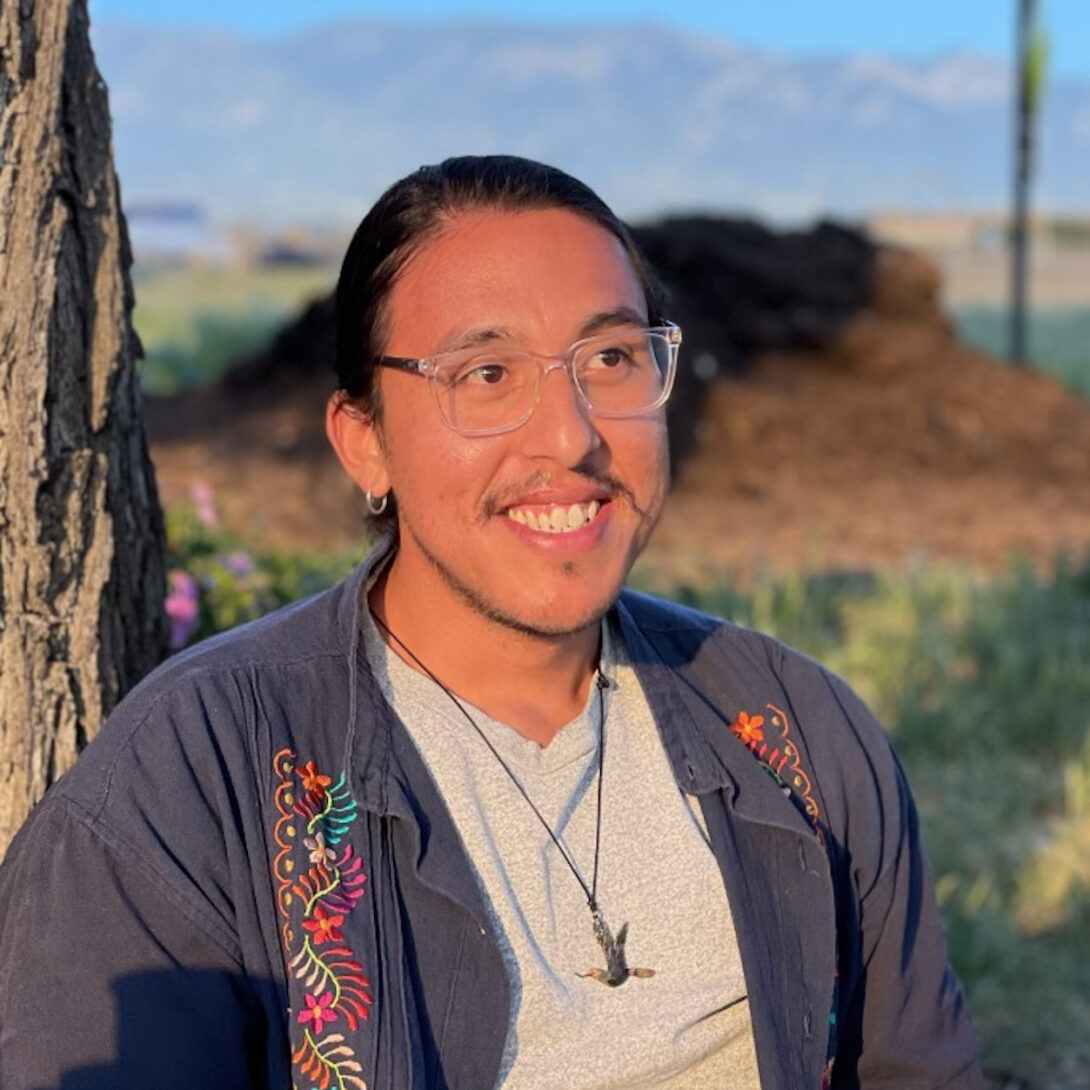
John Jairo Valencia (they/he) is an interdisciplinary artist, scholar, and cultural worker. They were raised in the East Los Angeles/San Gabriel Valley, CA area and have roots in the Chihuahuan Desert, Central Mexico, and the Colombian Andes. They received a BA in Native American Studies with minors in Art Practice and Chicanx/Latinx Studies from UC Berkeley and are currently working on a Ph.D. through UC Santa Barbara’s Department of Chicana and Chicano Studies. Through their prospective scholarship, John Jairo will thread their personal and community creative practice through a study of ancestral memory, non-western epistemologies, and liberation philosophies. They are interested in artistic interventions and resistances to cultural amnesia, intergenerational trauma, and internalized oppression. In the wider weaving of their research, they seek to learn from and uncover pedagogical lessons for Indigenous cultural recovery, communal healing, and peace building through Xicana feminist, Indigenous, decolonial, and non-violent activist, artistic, cultural, and spiritual traditions.
Mentor | Susy Zepeda, Associate Professor, Chicana and Chicano Studies
University of California, Davis
YUNUEN VELÁSQUEZ | Texas Tech University Heading link
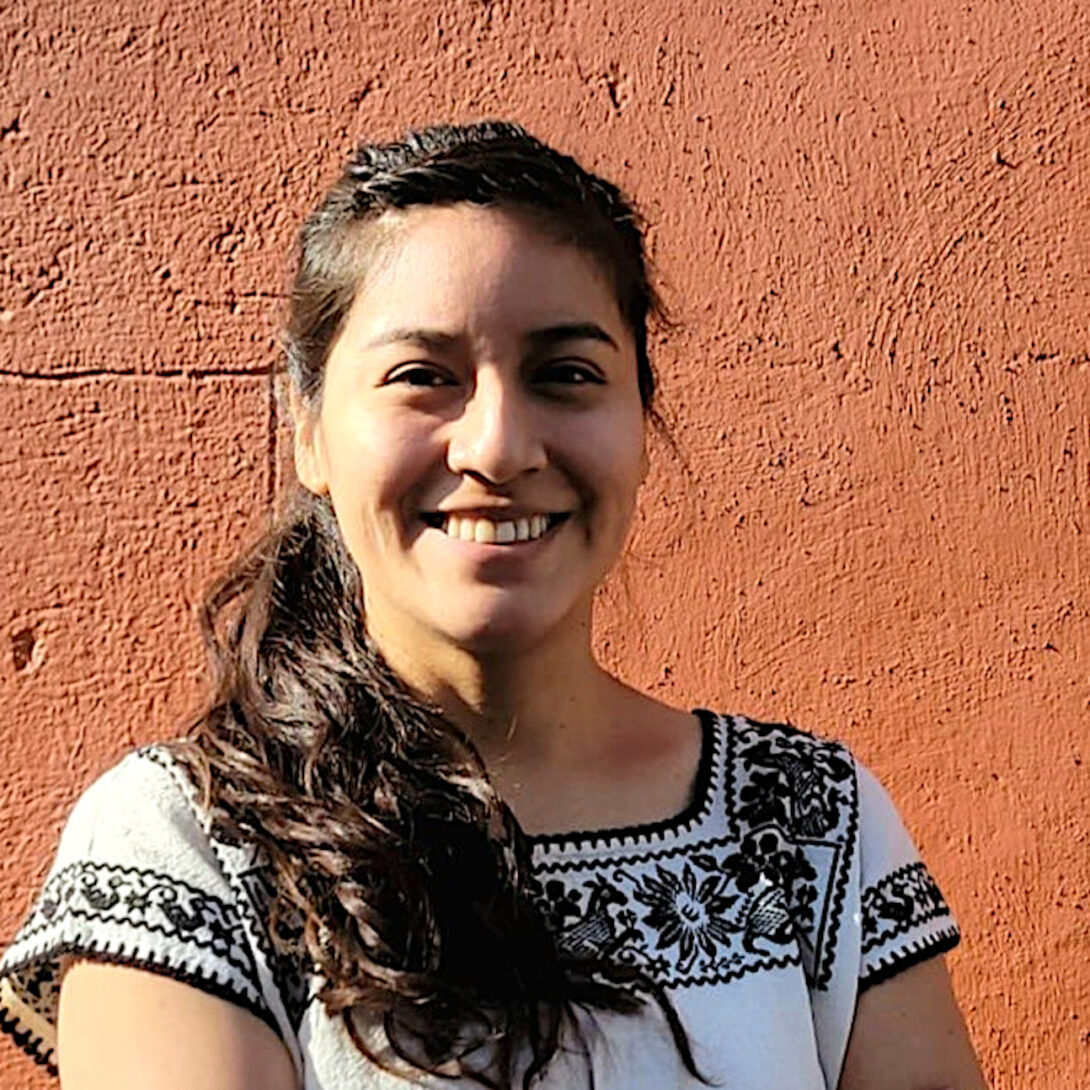
Yunuen Velásquez is originally from Michoacán, México, and grew up in Minnesota. She is a Ph.D. student of Spanish Literature and Cultures at Texas Tech University. She holds an M.A. in Spanish Literature from Texas Tech University and earned a B.S. in Spanish Education and Teaching English as a Second Language (TESL) from Minnesota State University, Moorhead. Furthermore, she also holds a B.A. in Spanish and Studio Art from Concordia College, Moorhead. Currently, she is a Graduate Part-Time Instructor in the Department of Cultures of Classical & Modern Language and Literatures. Her research interests include Chicana/o/x, Mexican, US-Mexico border literature, Women and Gender Studies, and Spanish as a heritage language pedagogy.
Mentor | Karen Mary Davalos, Professor and Chair
Chicano and Latino Studies
University of Minnesota
CASSANDRA YATRON | University of Texas at Arlington Heading link
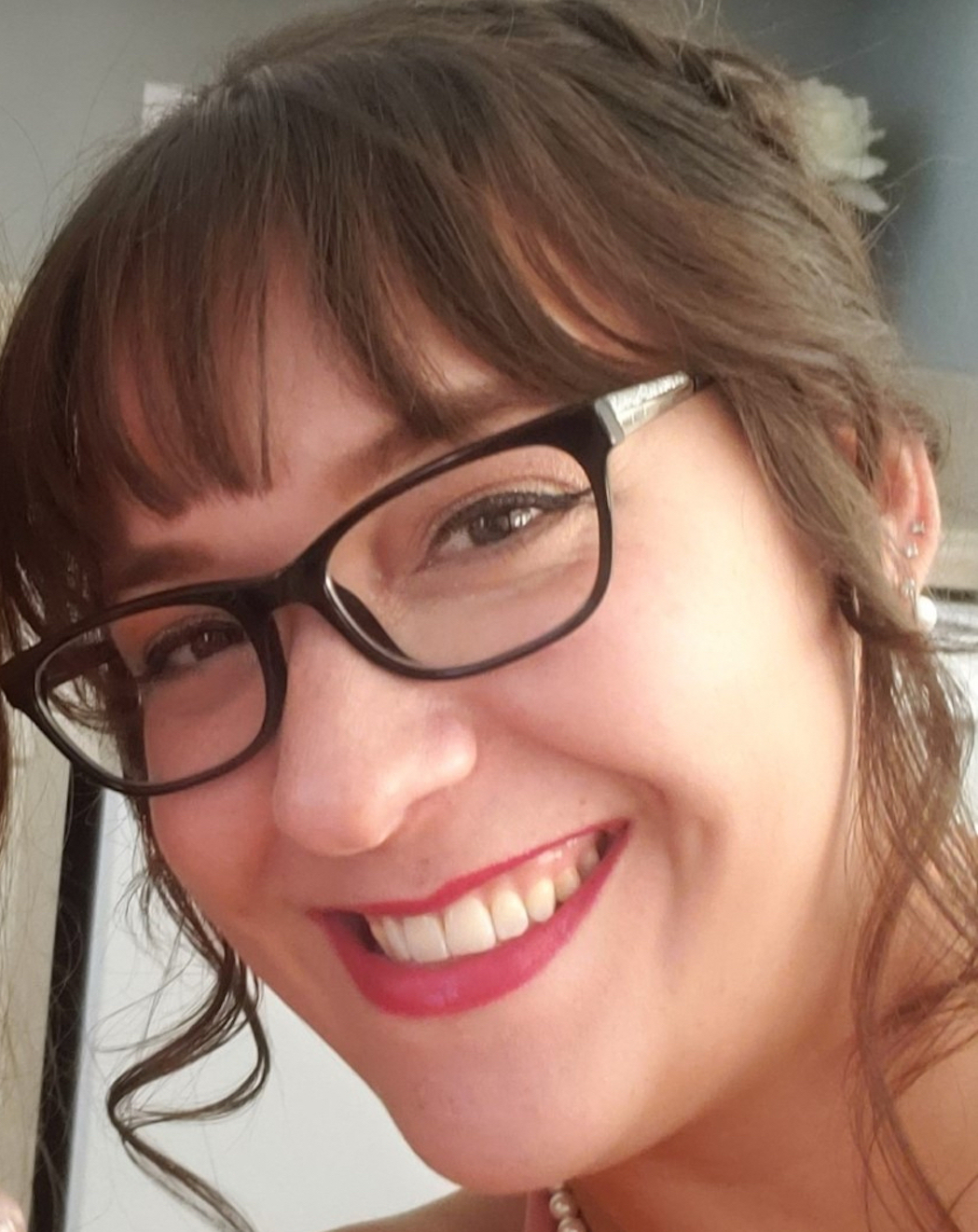
Cassandra Yatron received her BA in English and minor in film studies from Penn State University and, in 2019, completed her M.Ed. in teaching English Language Arts 7-12 from the University of North Texas. Currently, she is pursuing a Ph.D. in English at the University of Texas-Arlington. Her areas of research include feminist/queer theory, American fiction, and pedagogy, specifically in creating a more equitable classroom for culturally and linguistically diverse students.
Mentor | Frederick Luis Aldama, Jacob & Frances Sanger
Mossiker Chair in the Humanities
University of Texas at Austin
MARIA ZYLA | Florida International University Heading link
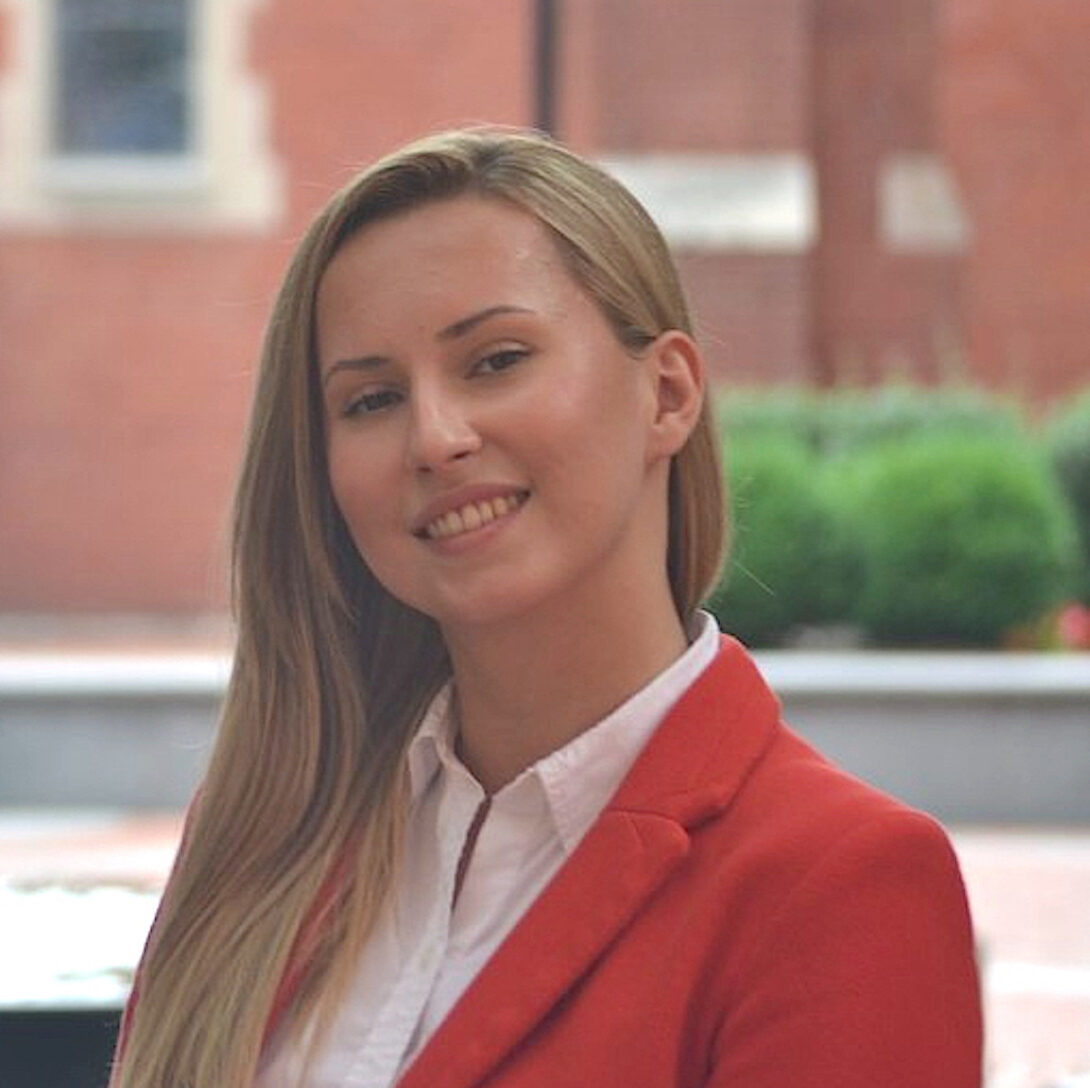
Maria Zyla is a second-year doctoral student in the History Department at Florida International University. She earned her bachelor’s in history, with minors in Fine Arts and Spanish Language, from the University of New Haven, and a Master’s in Global, International, and Comparative History from Georgetown University. Maria currently studies US-Cuban cultural and transnational history, exploring gender, sexuality, and migration in the Havana-Harlem Renaissance of the early twentieth century, with a focus on music, literature, and art. She also loves music and making art.
Mentor | Nancy Raquel Mirabal, Associate Professor
American Studies
University of Maryland